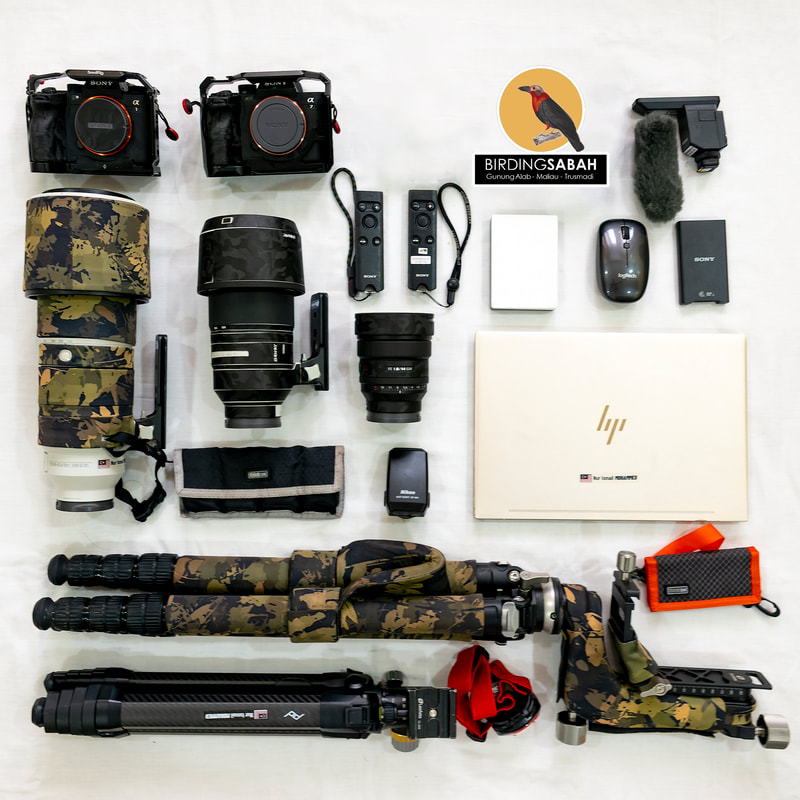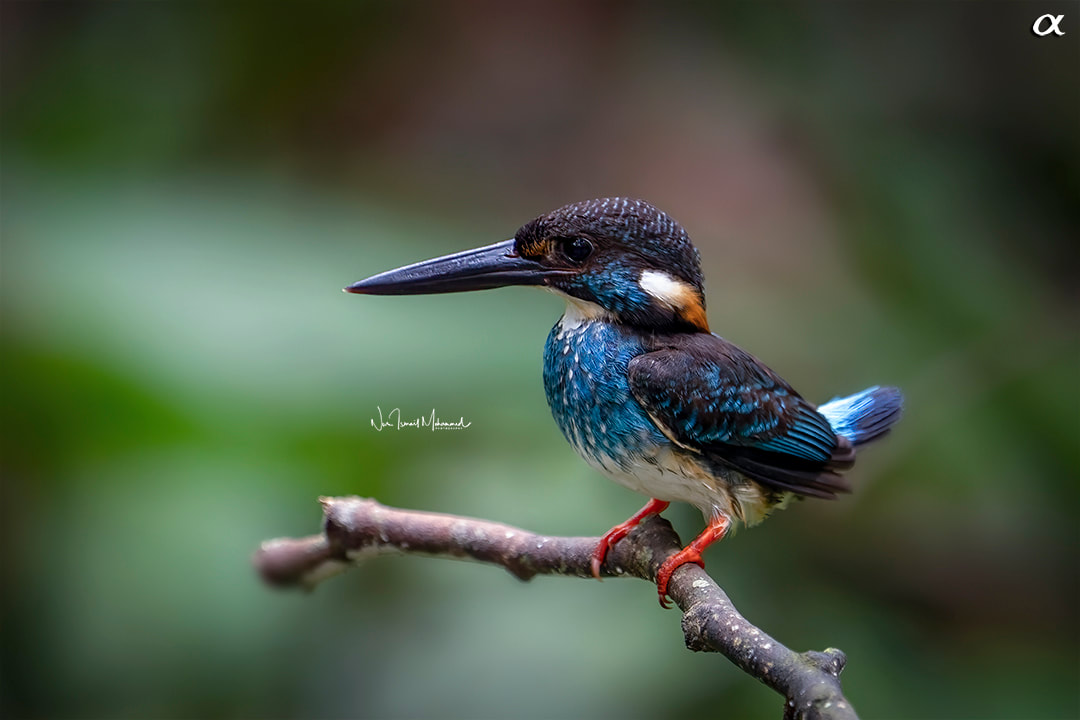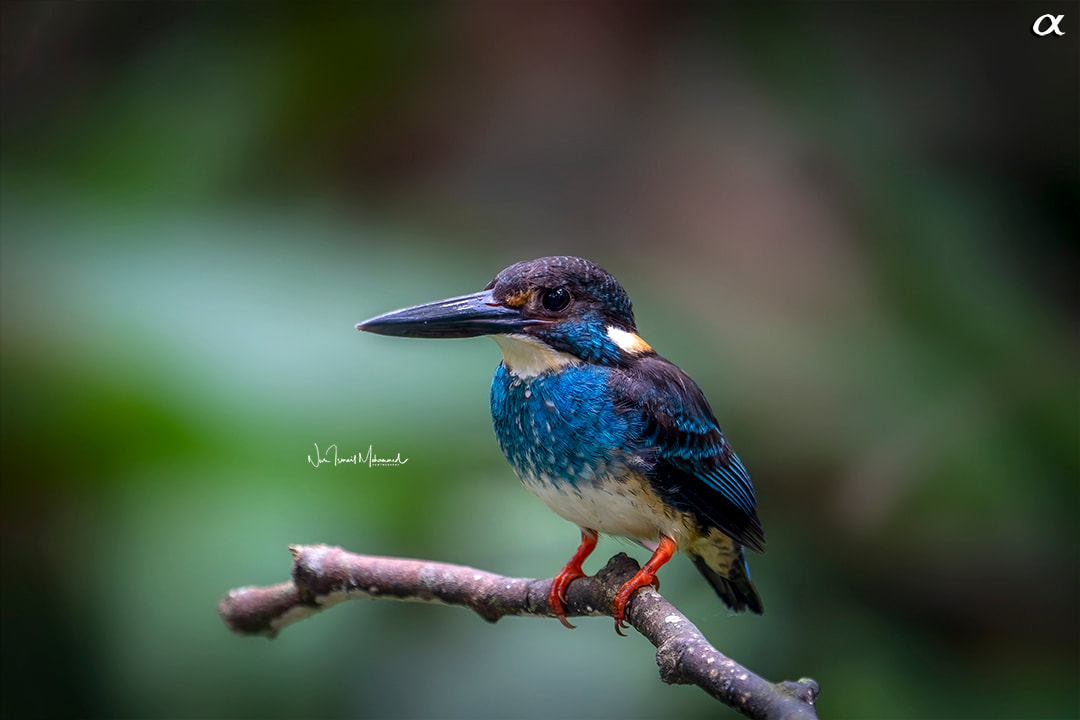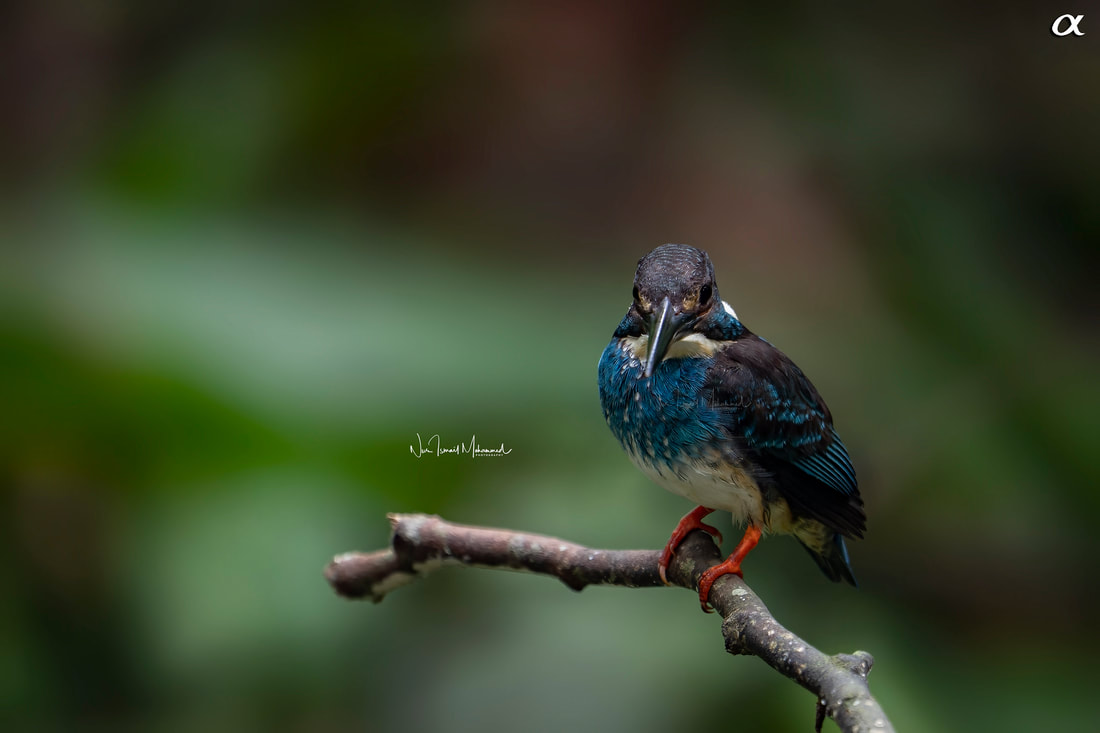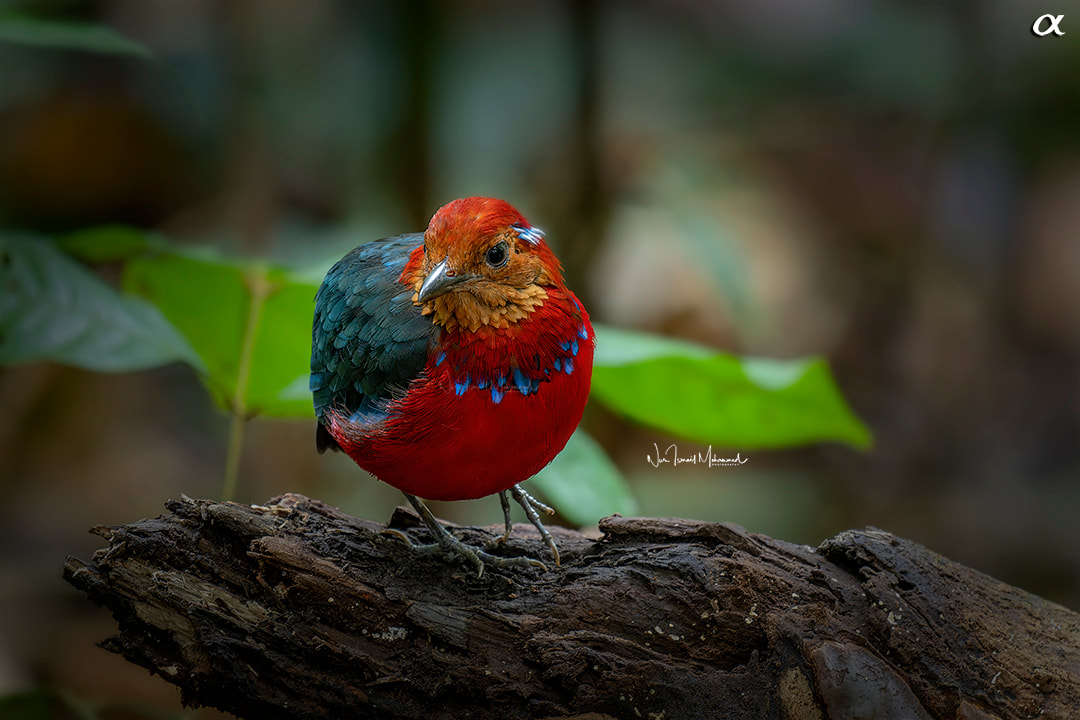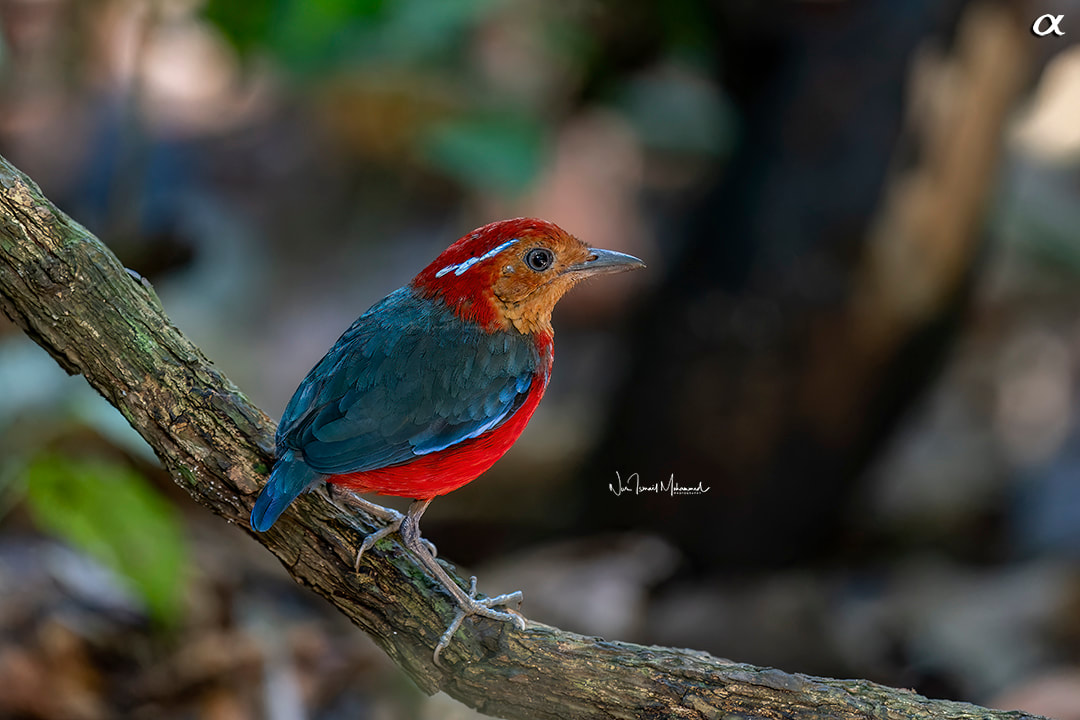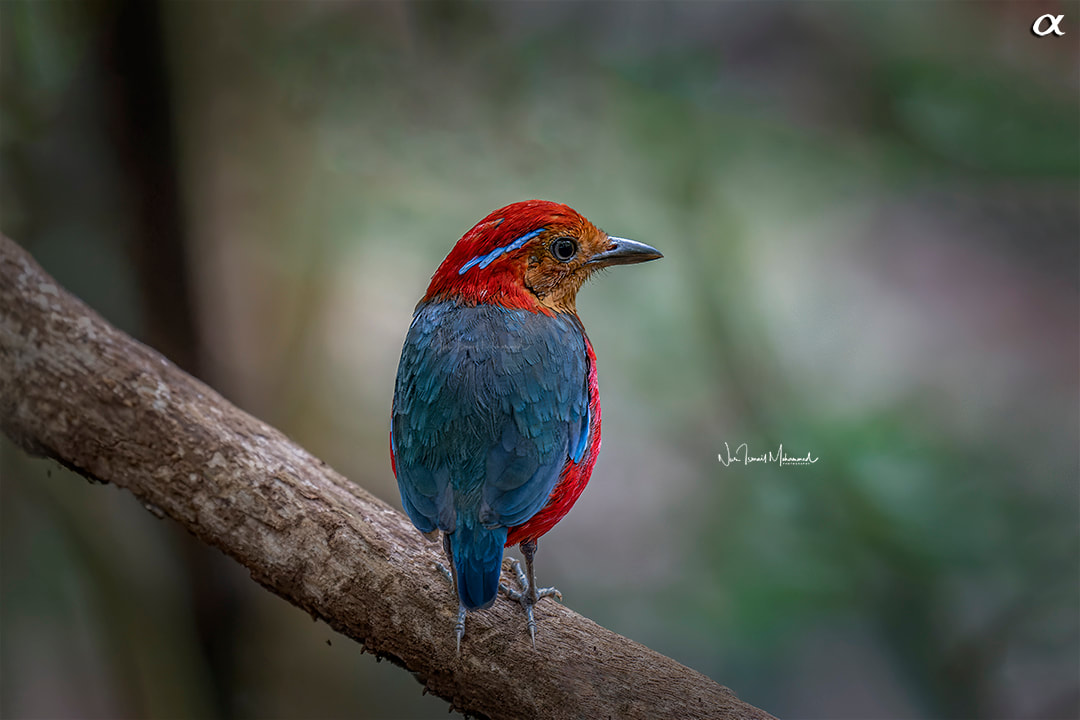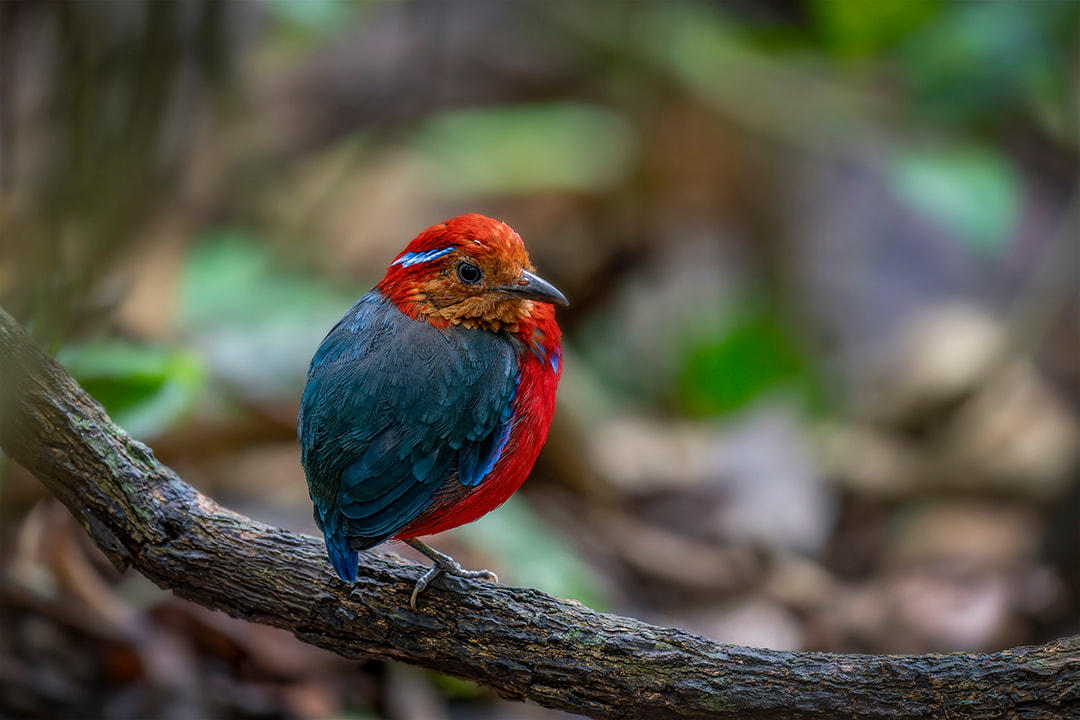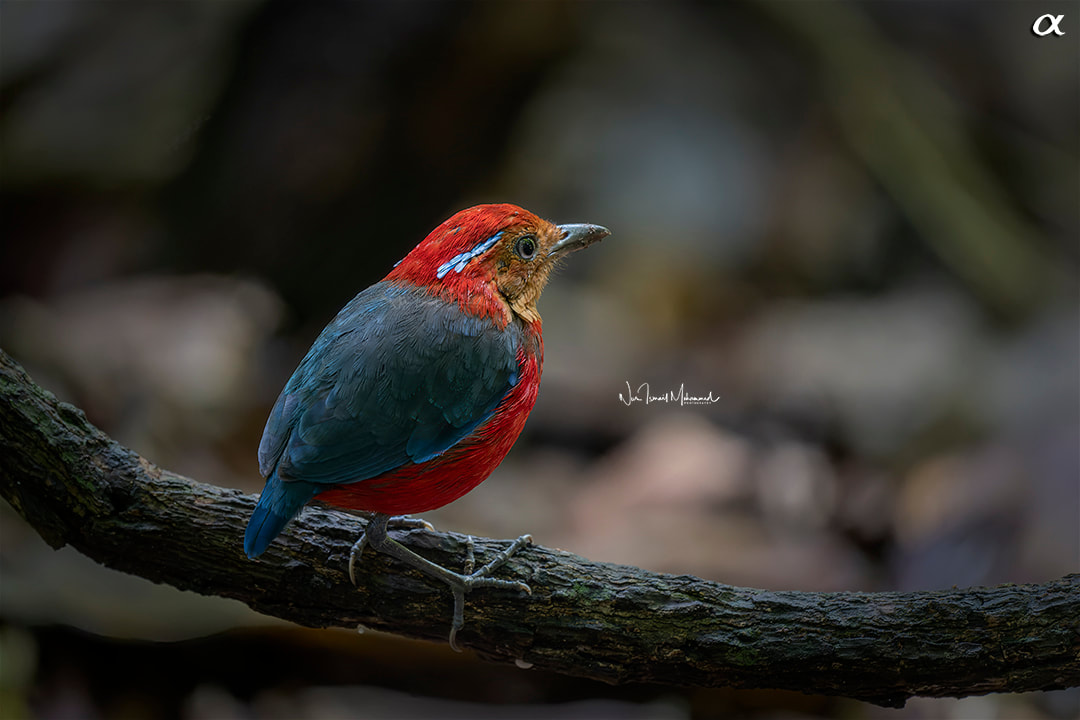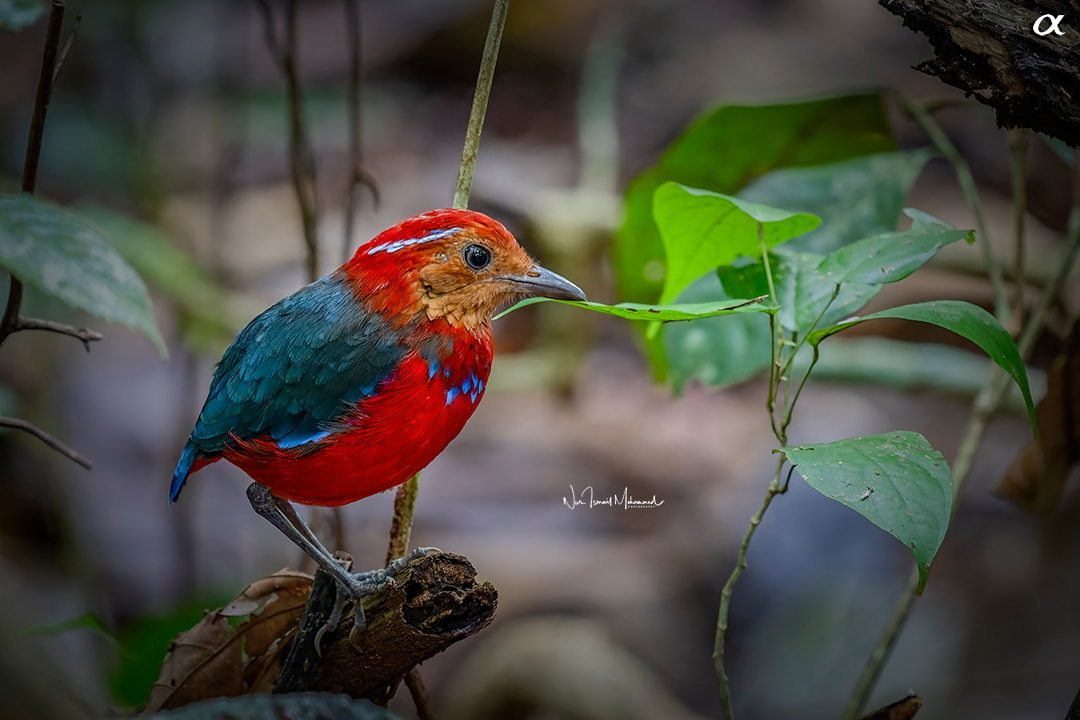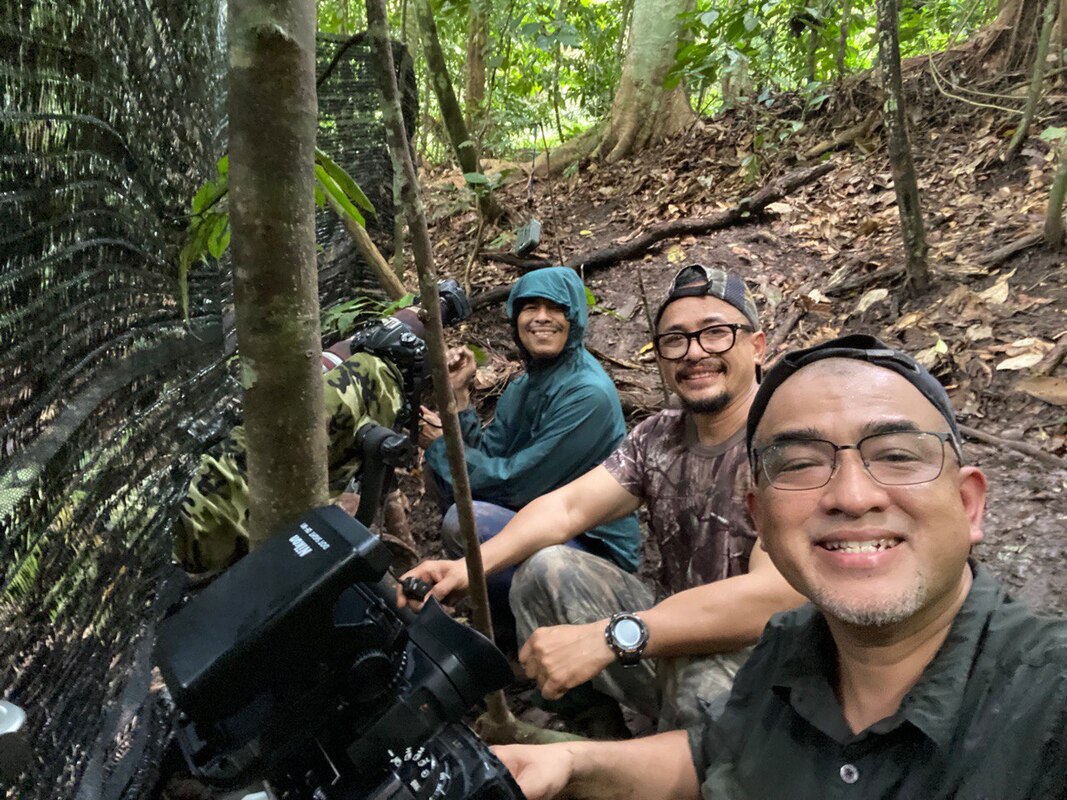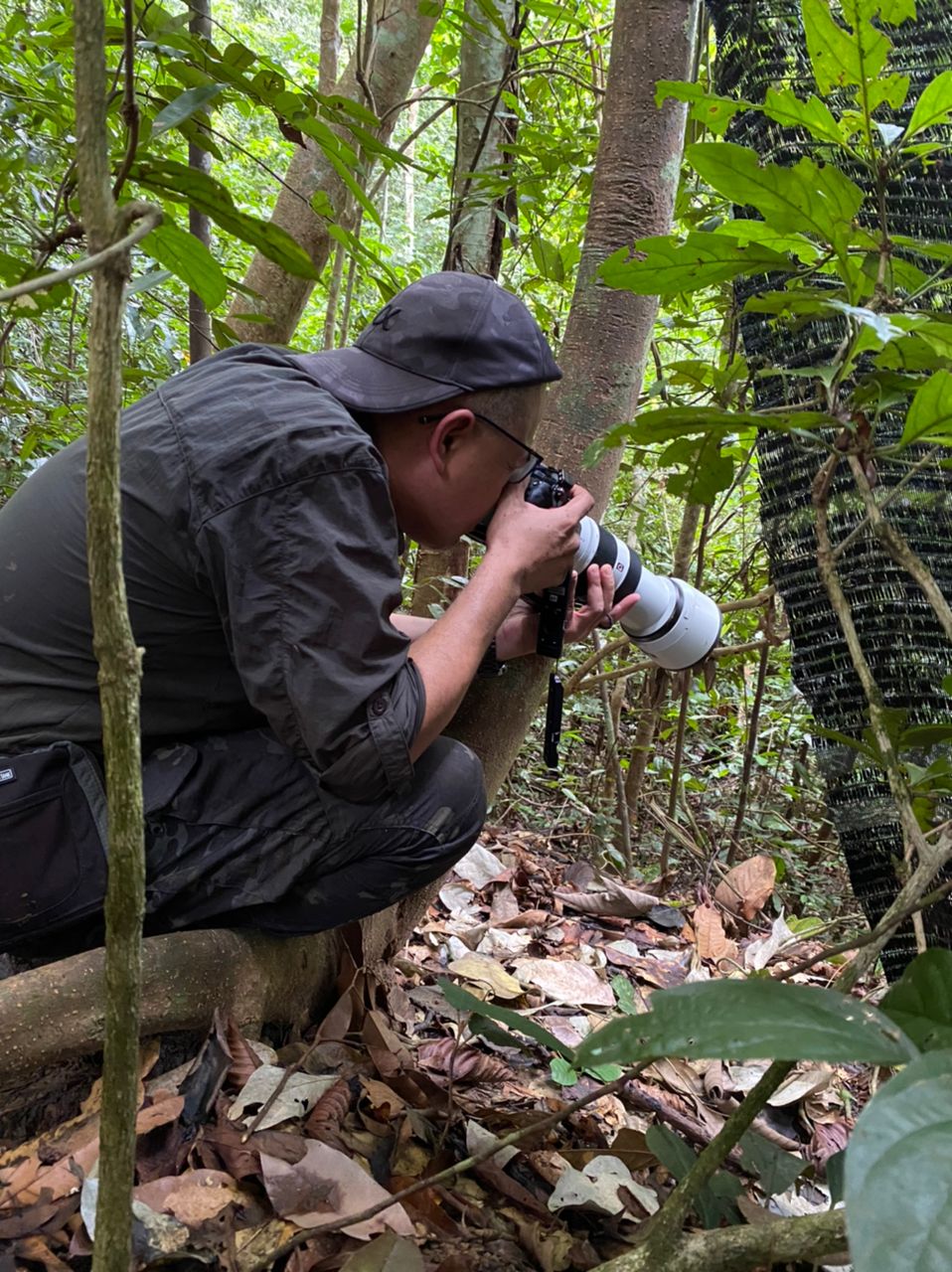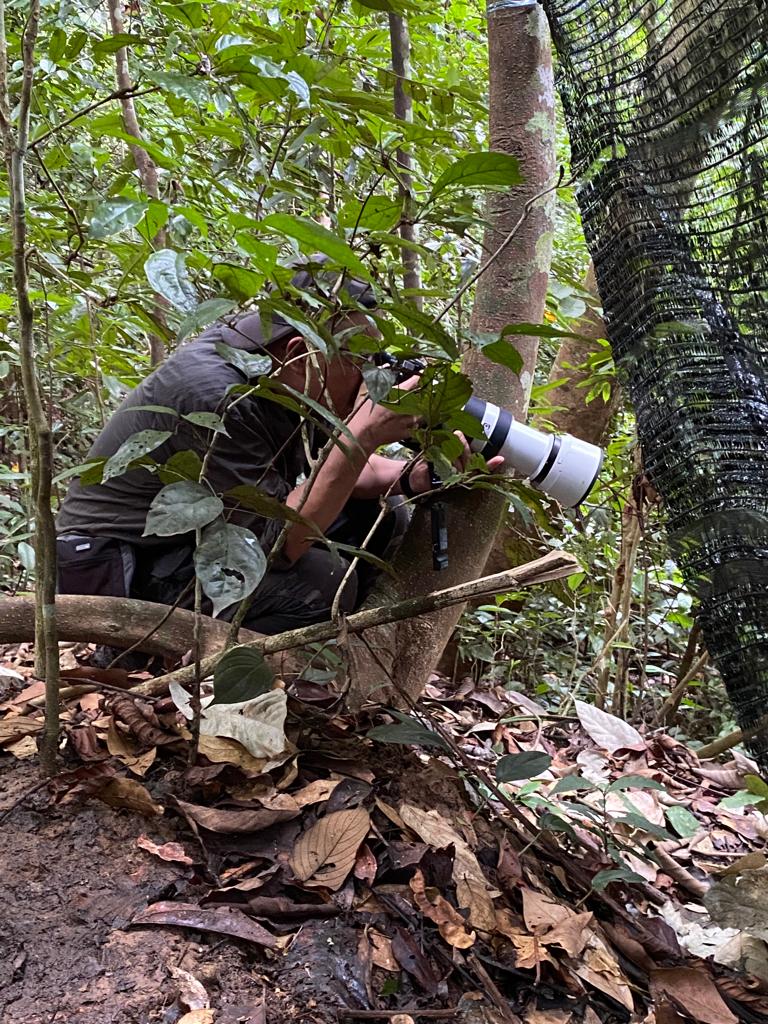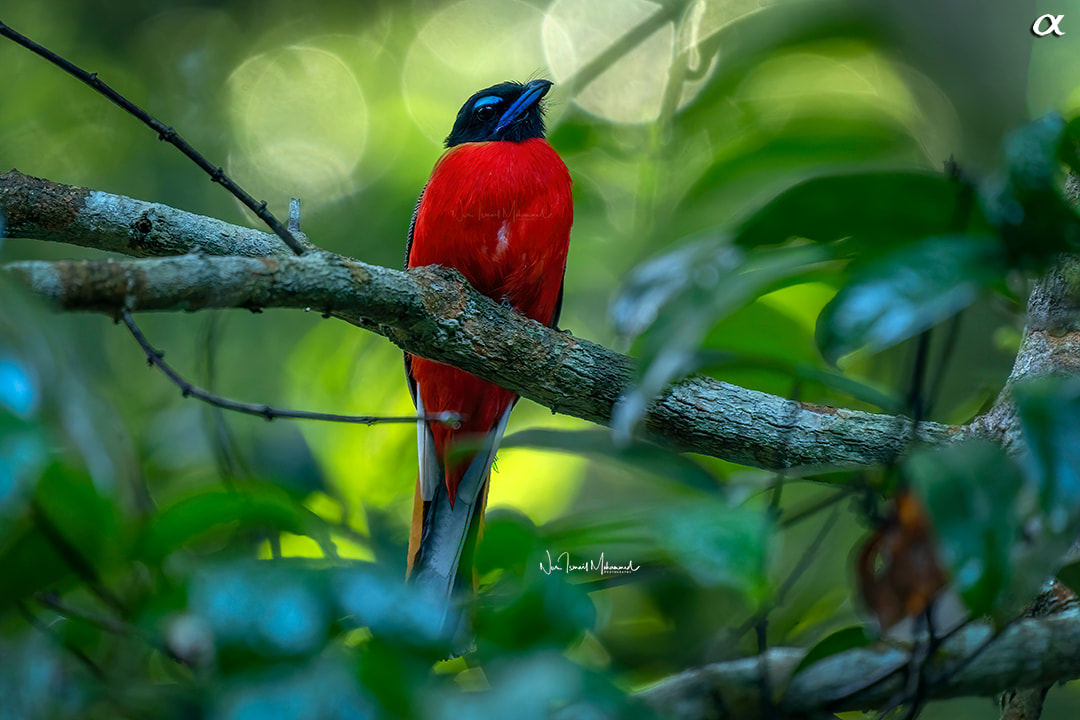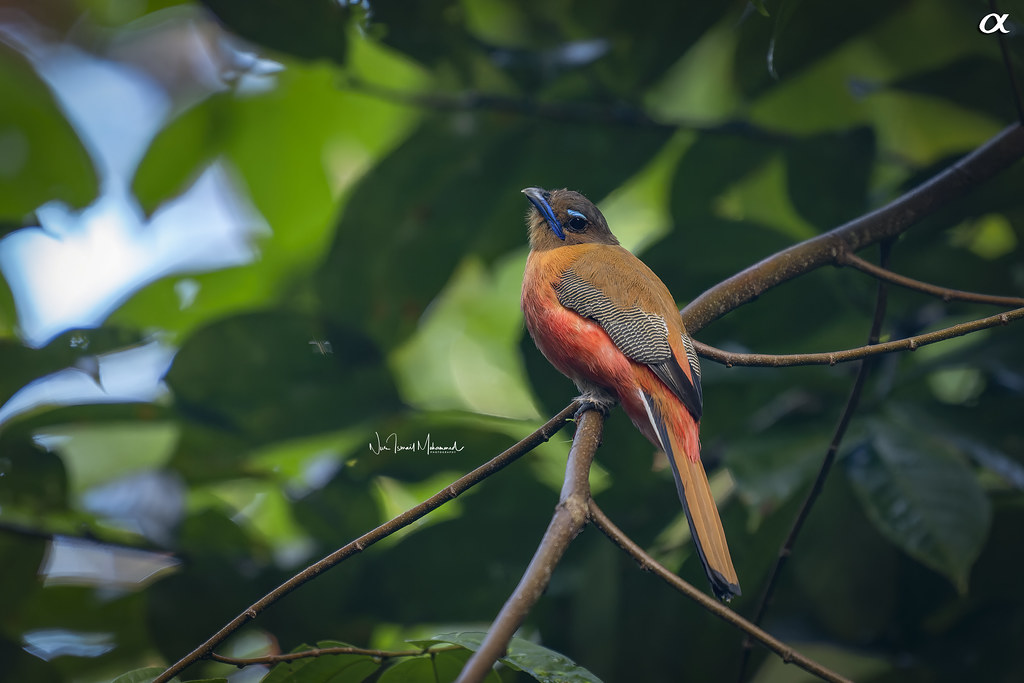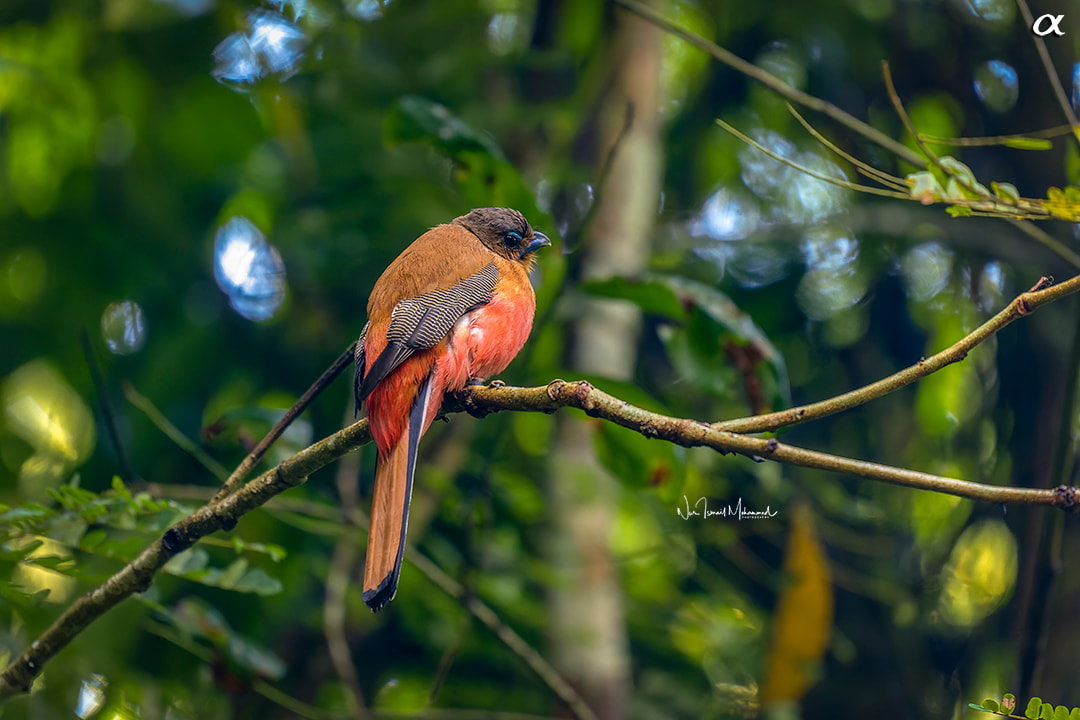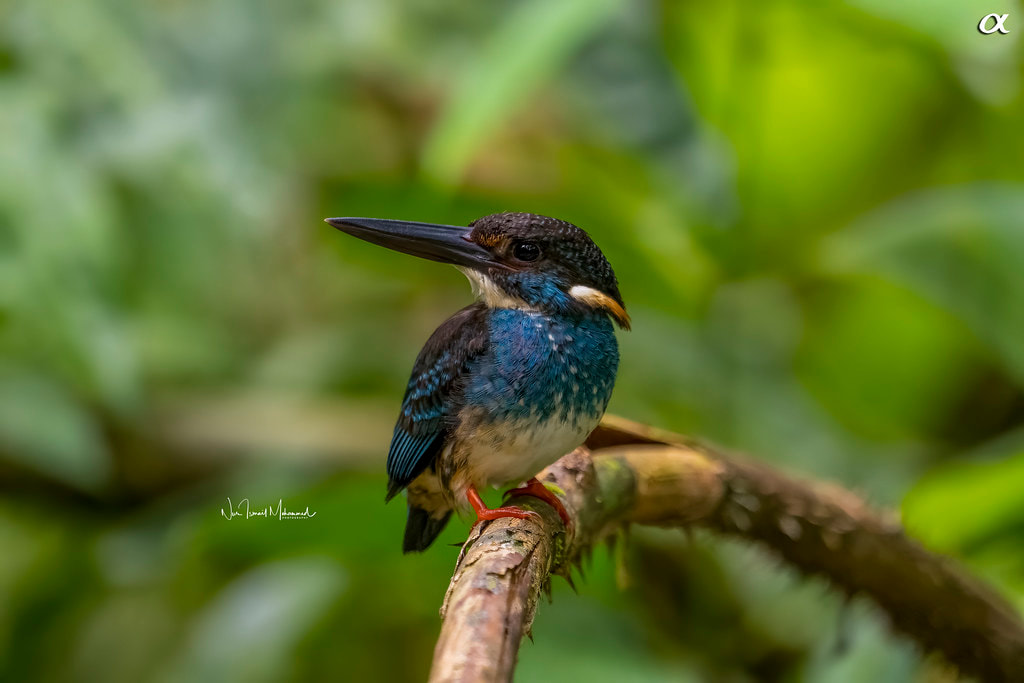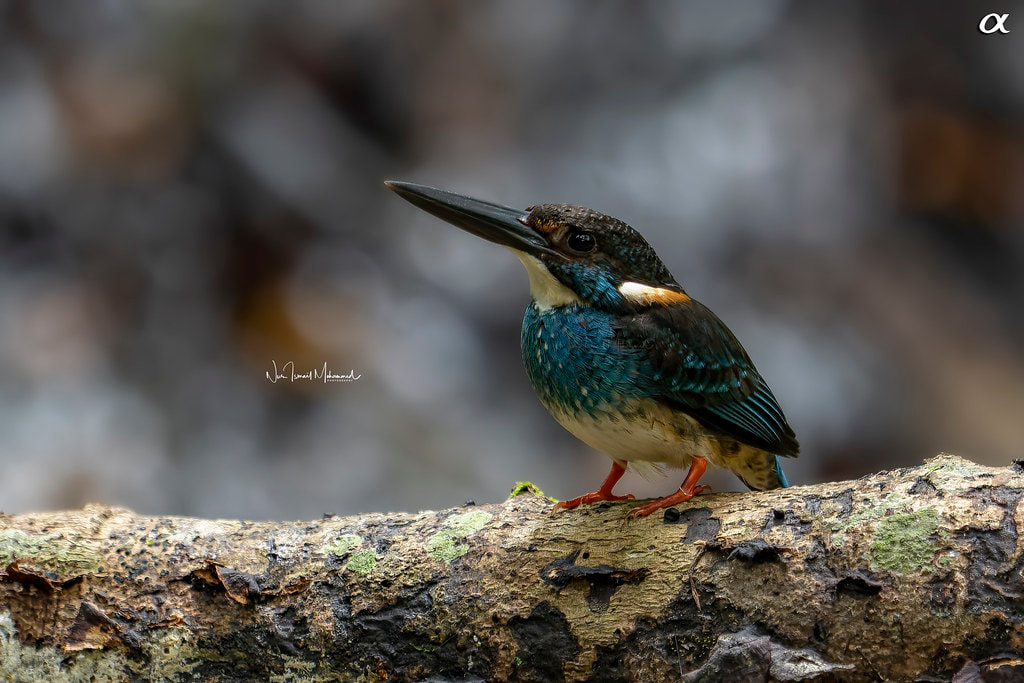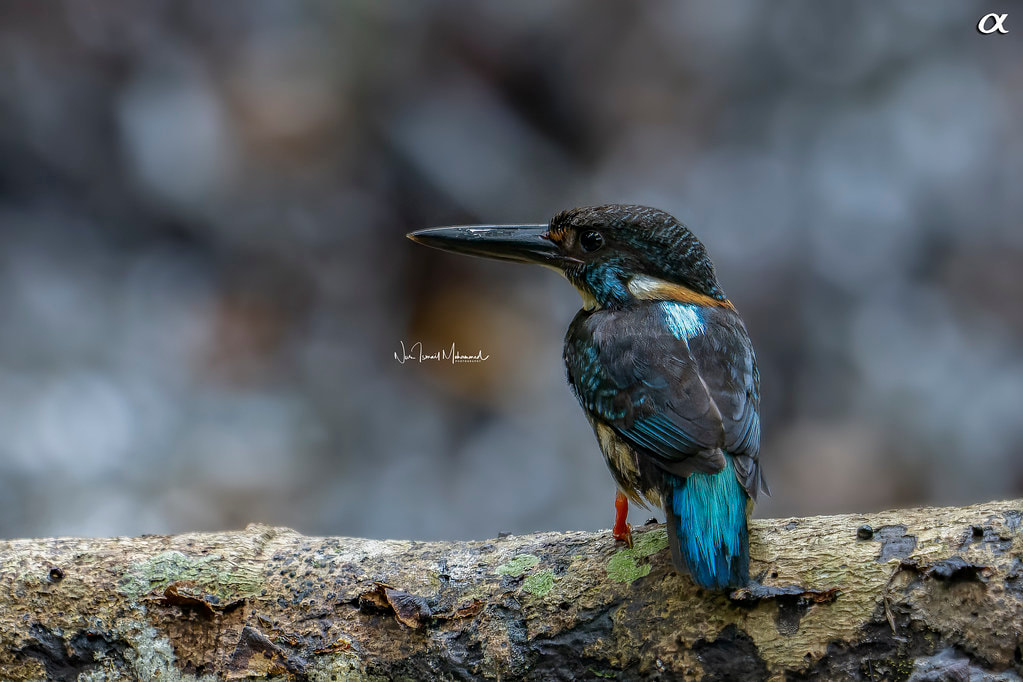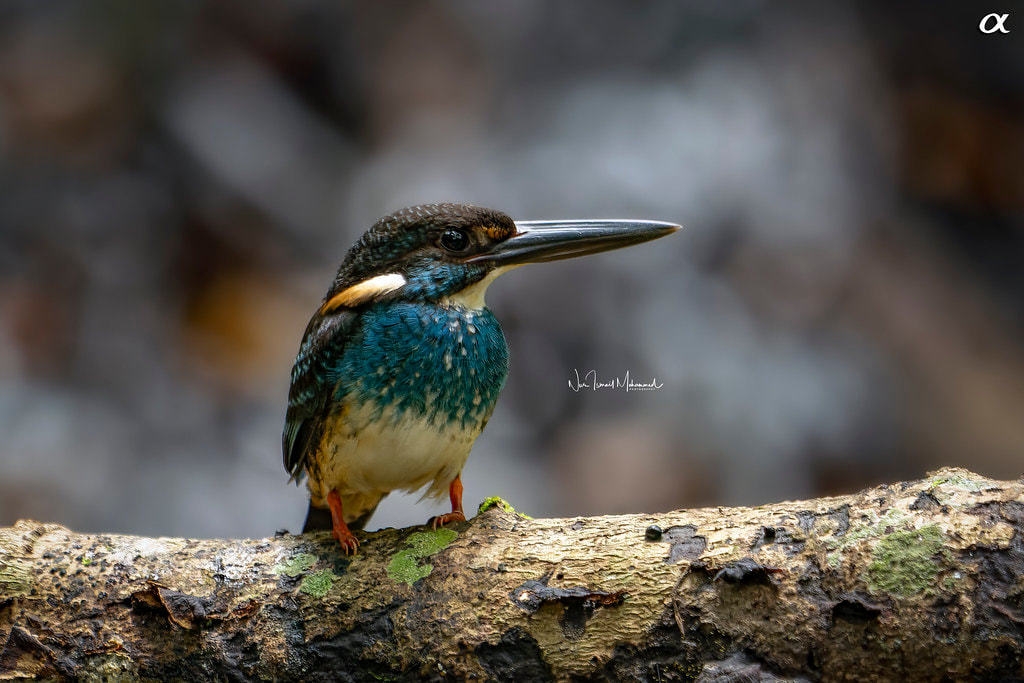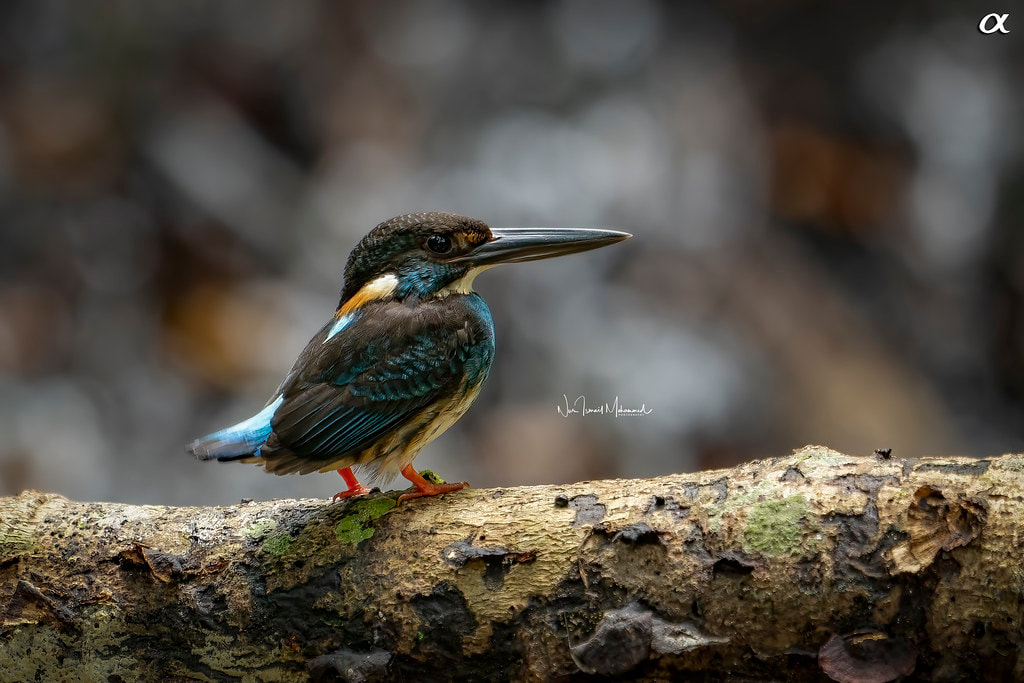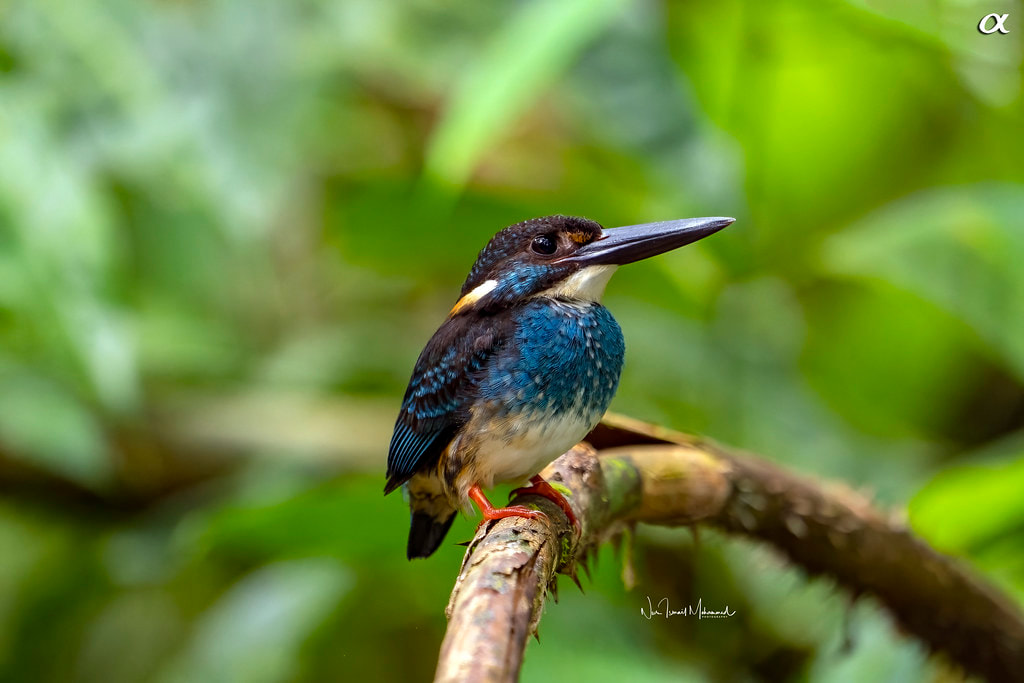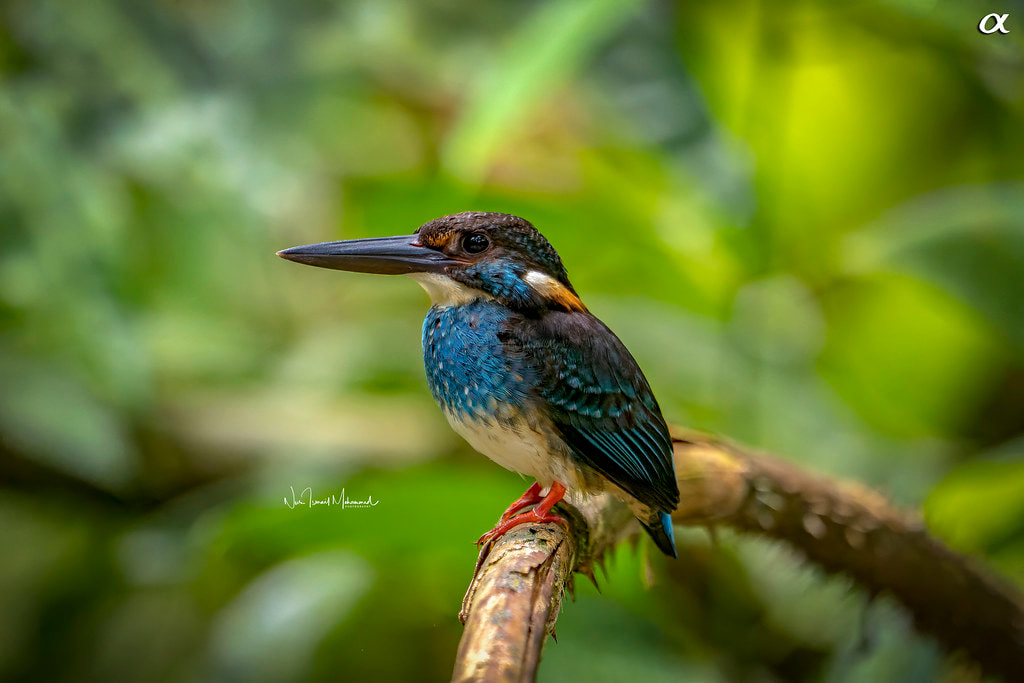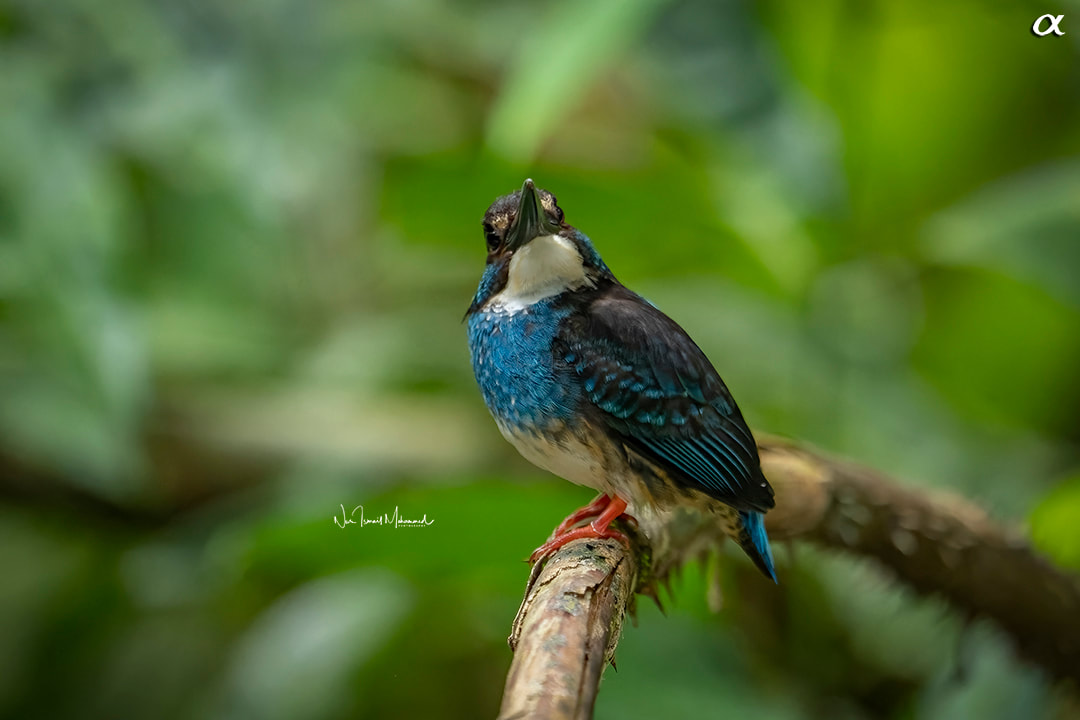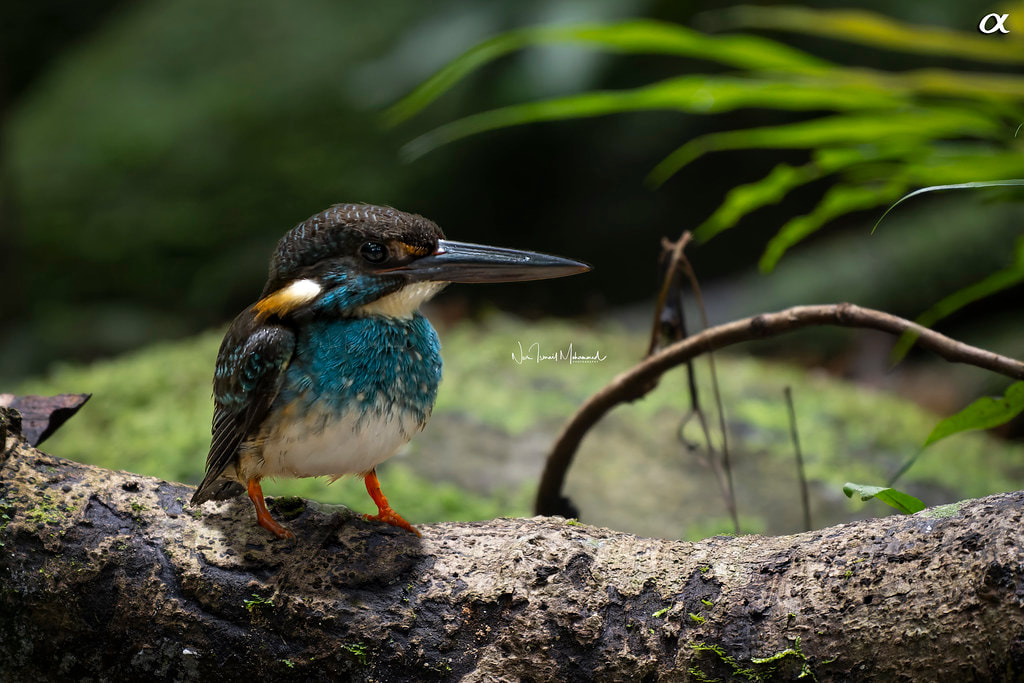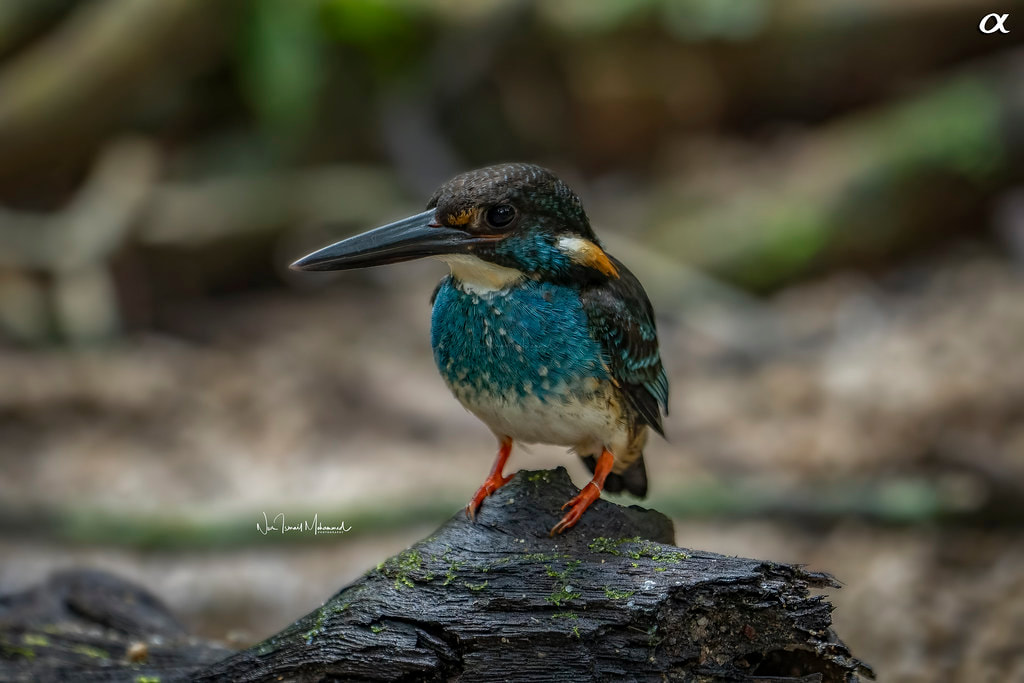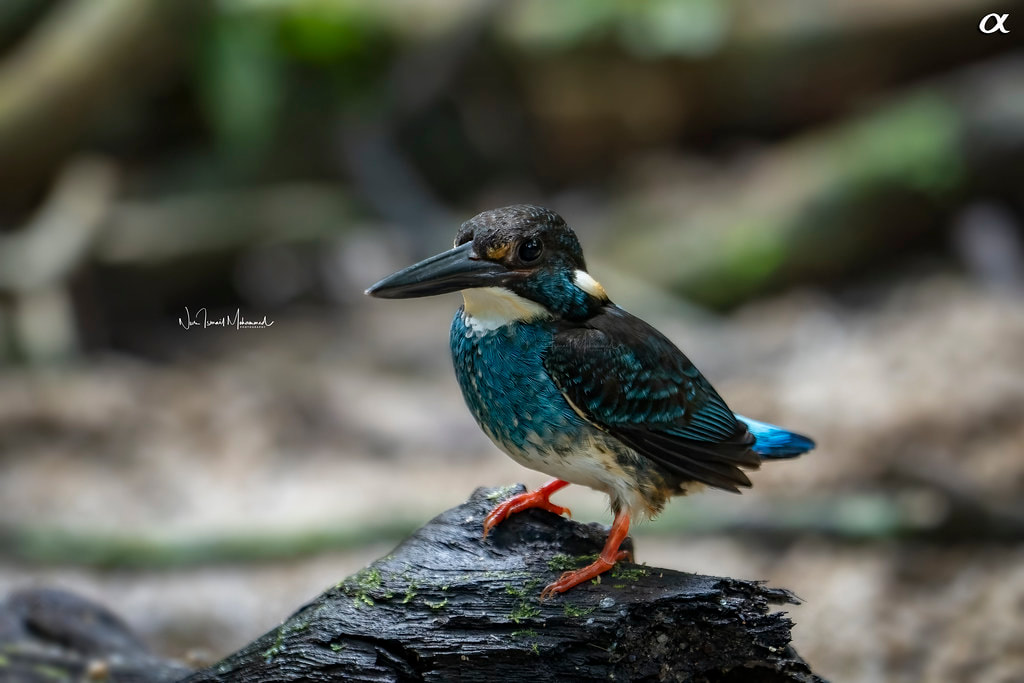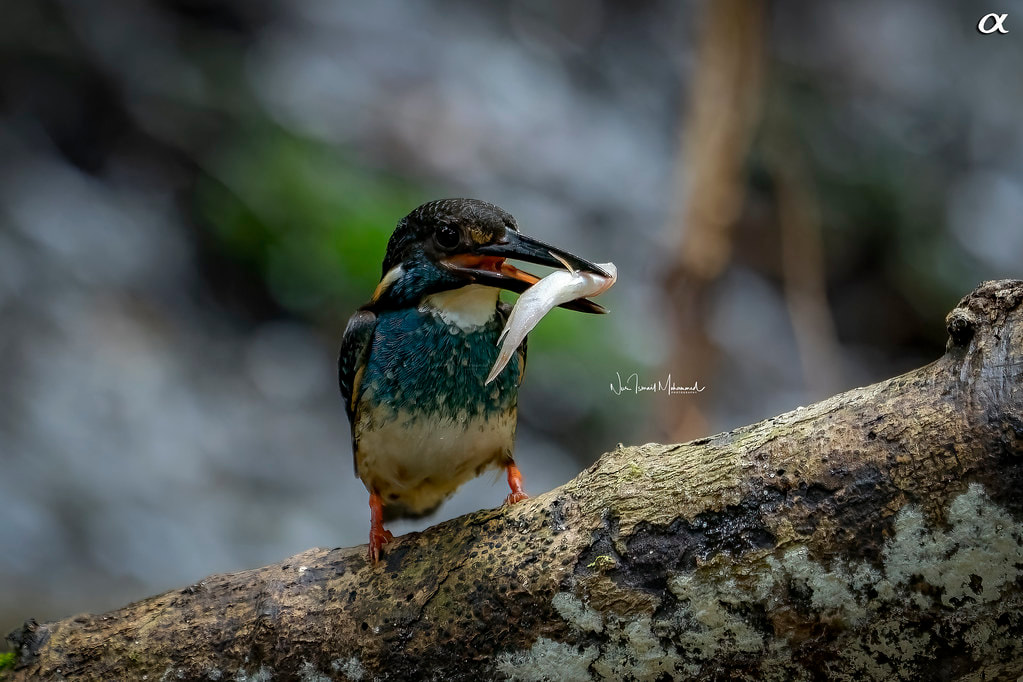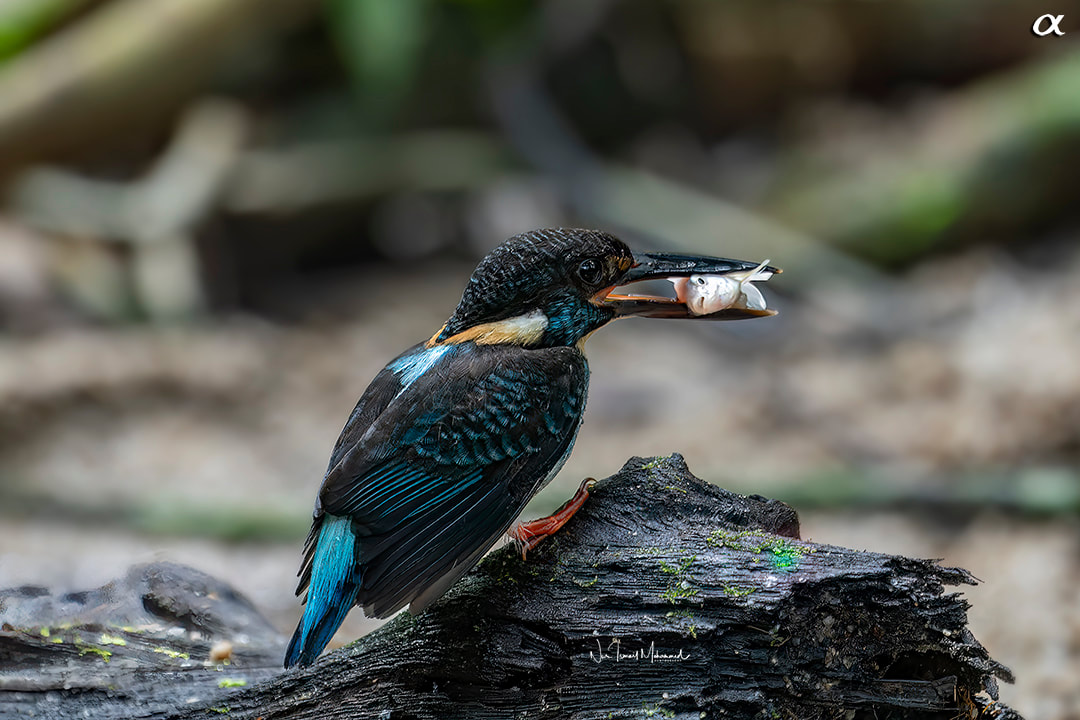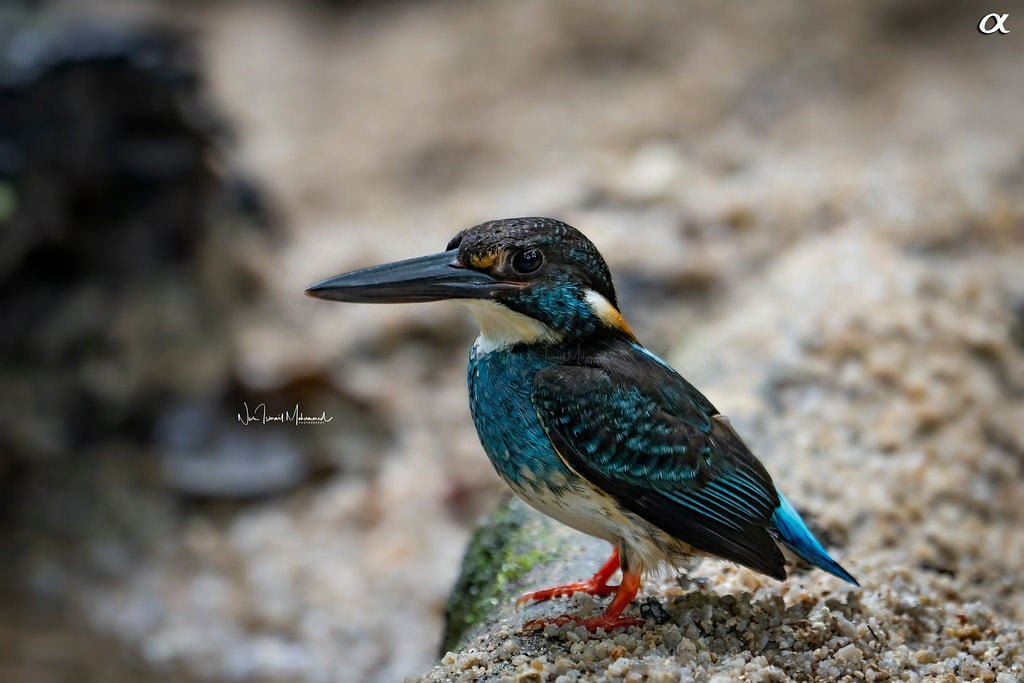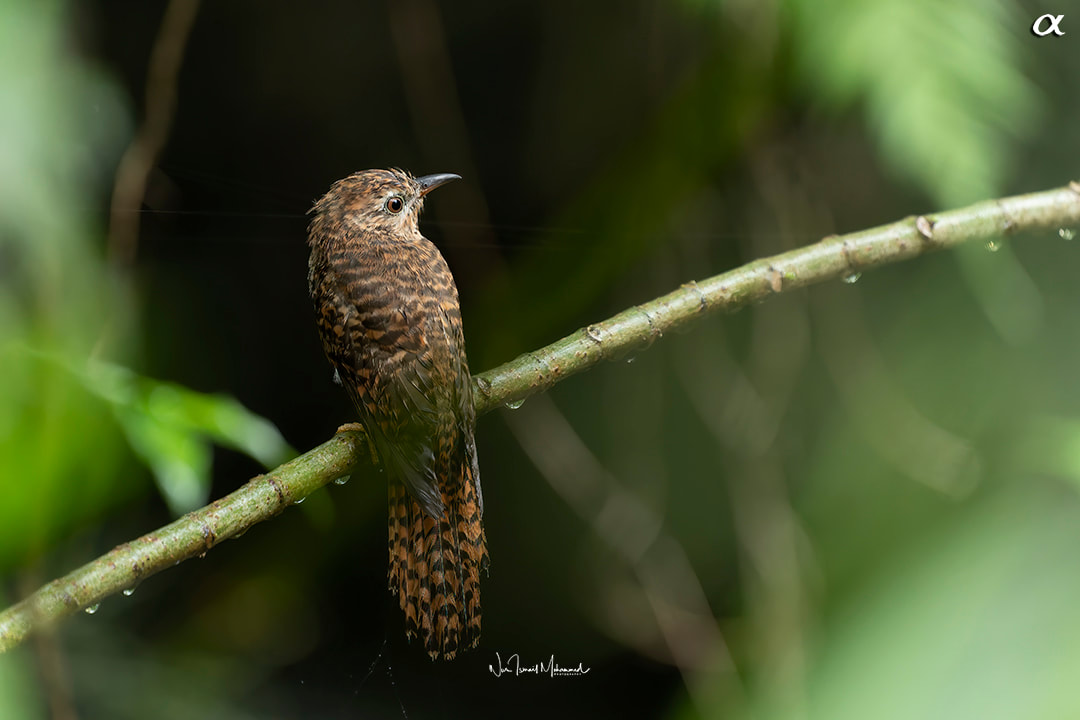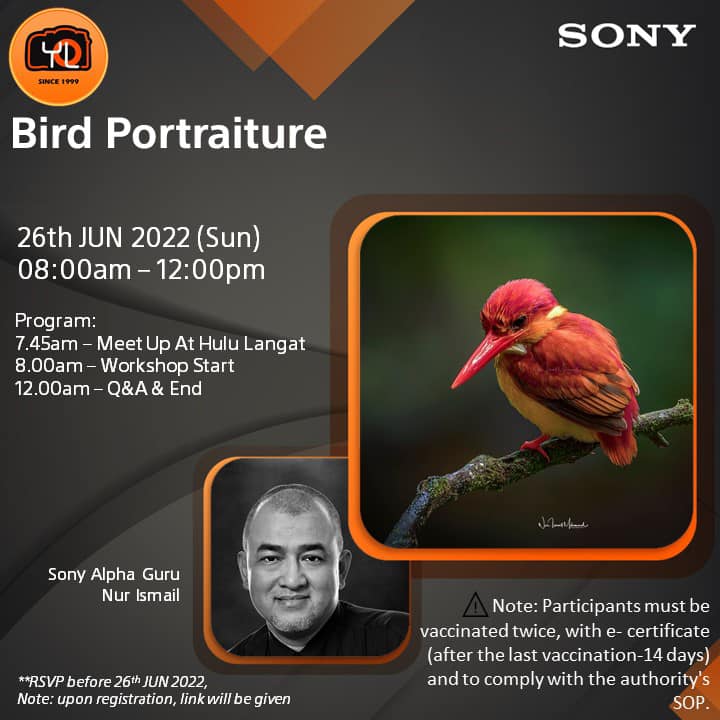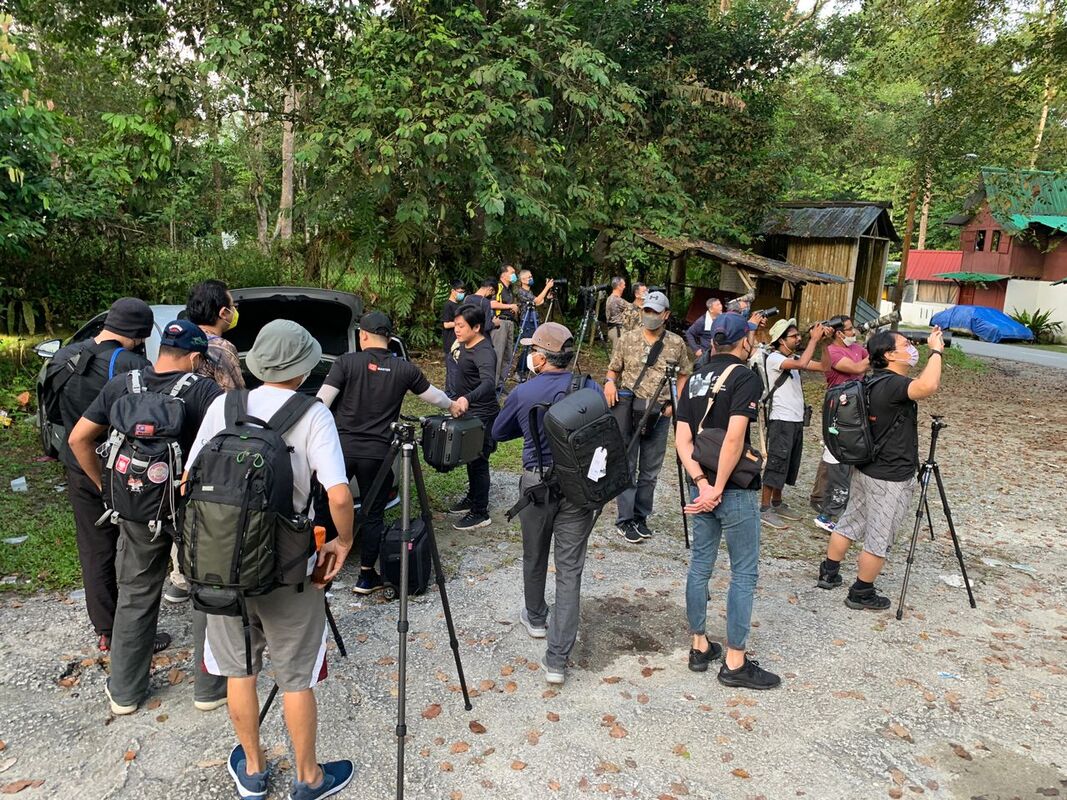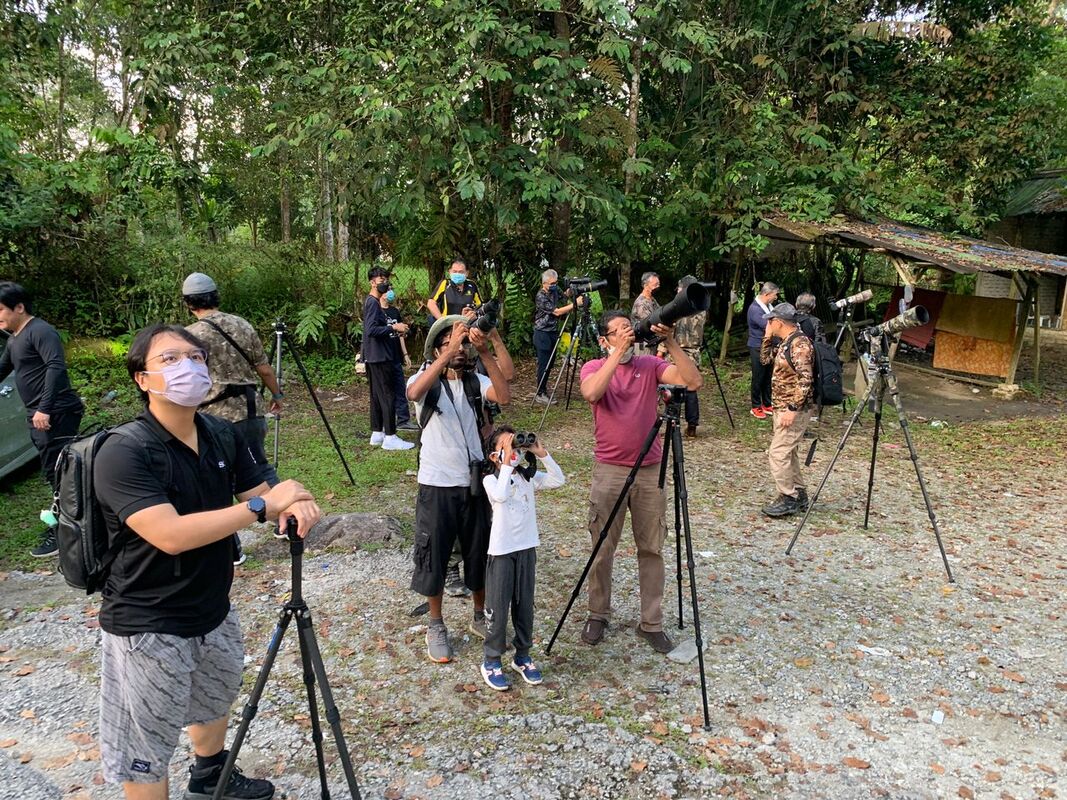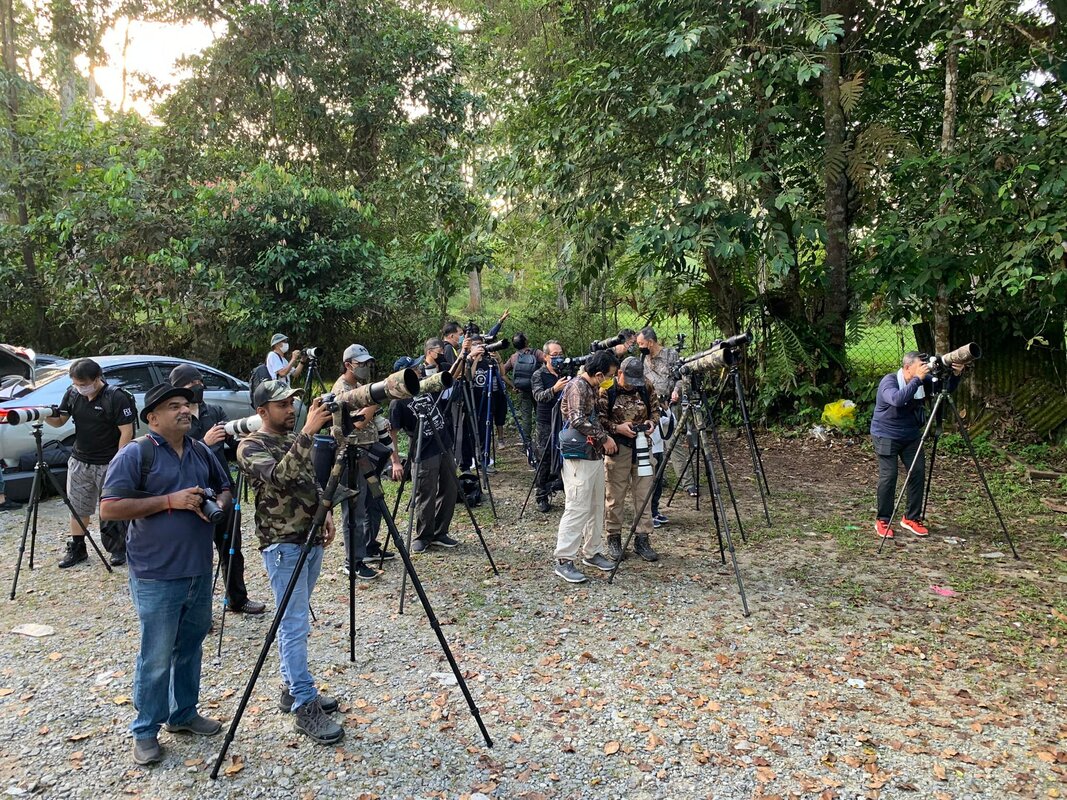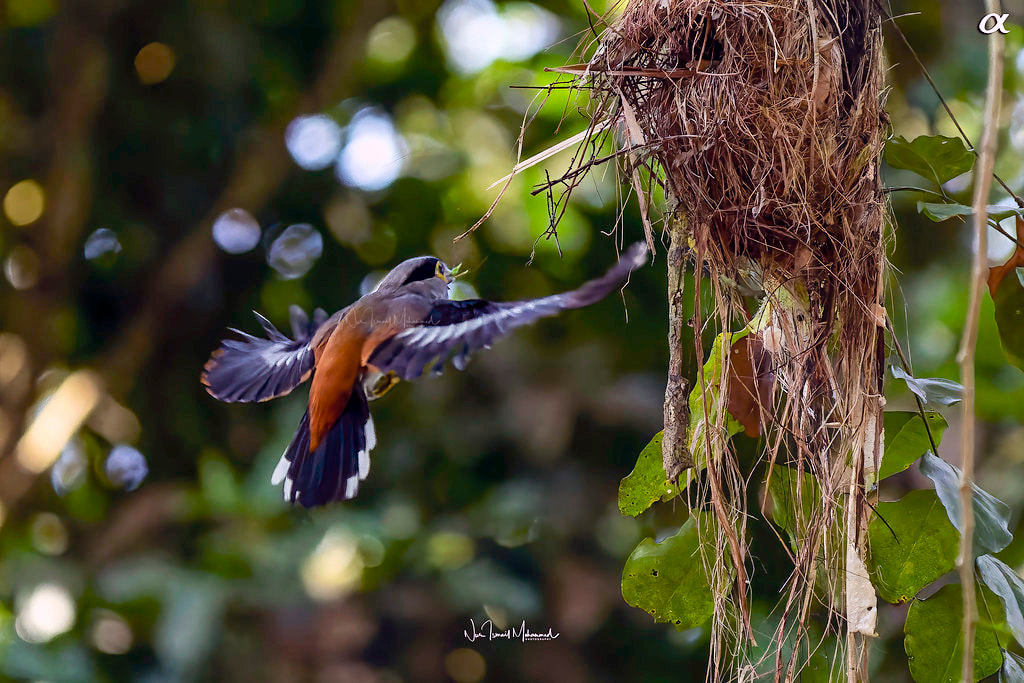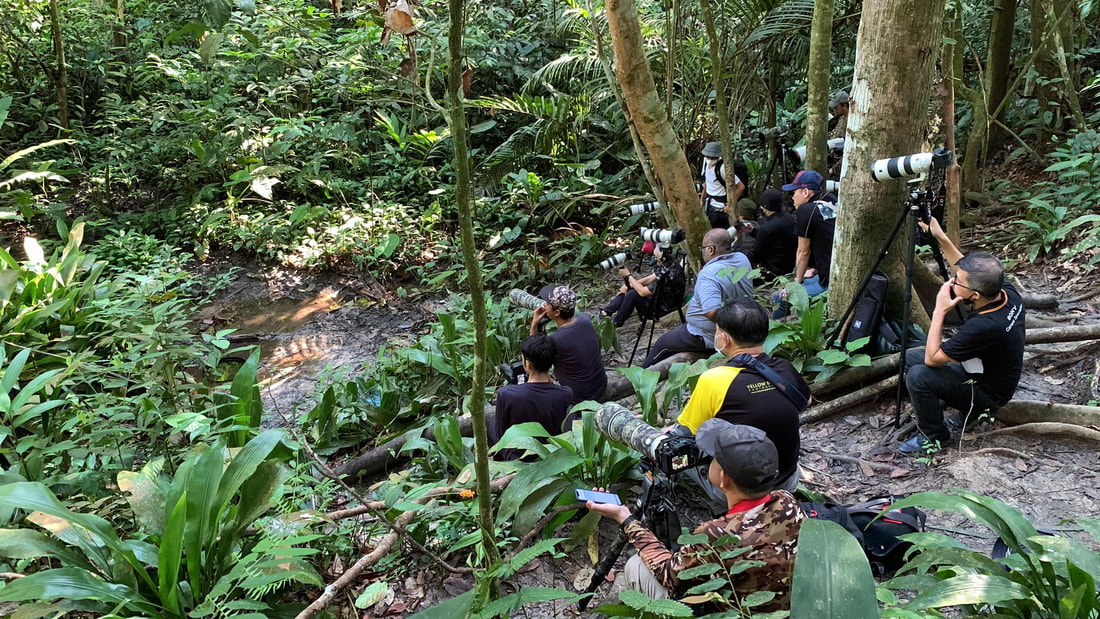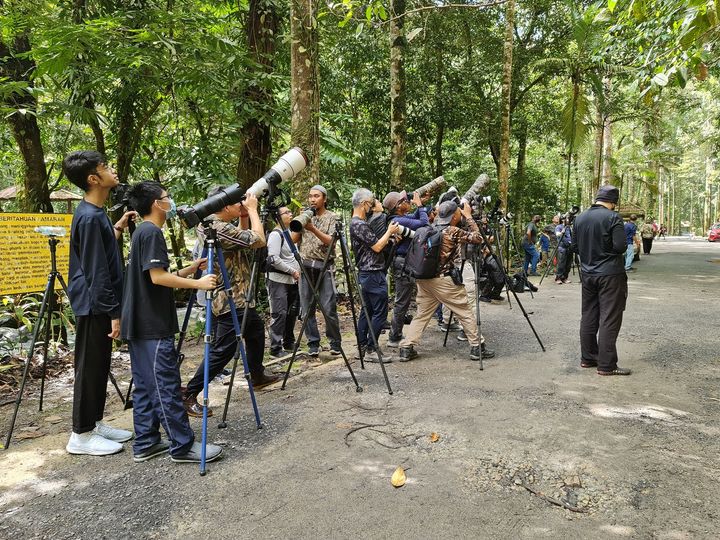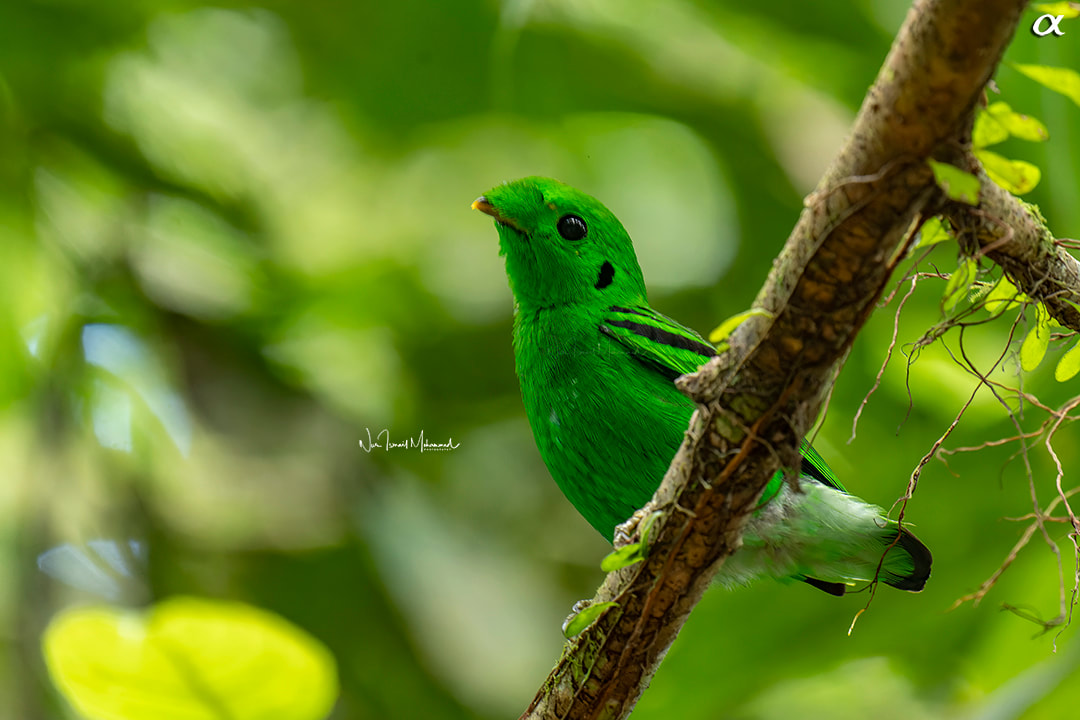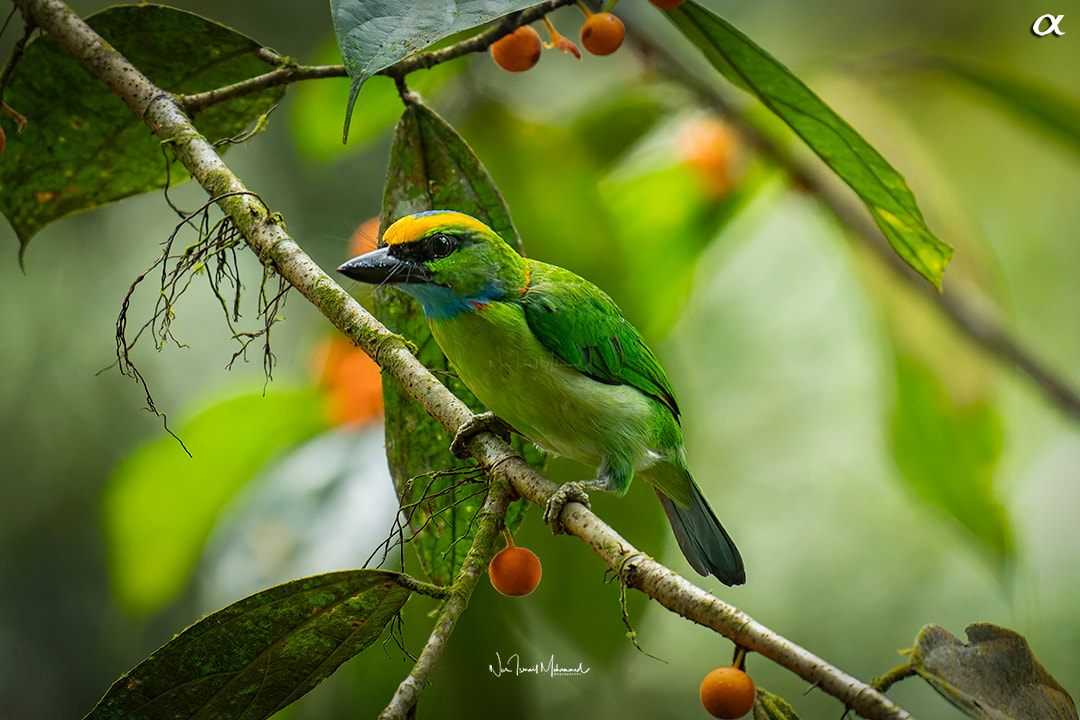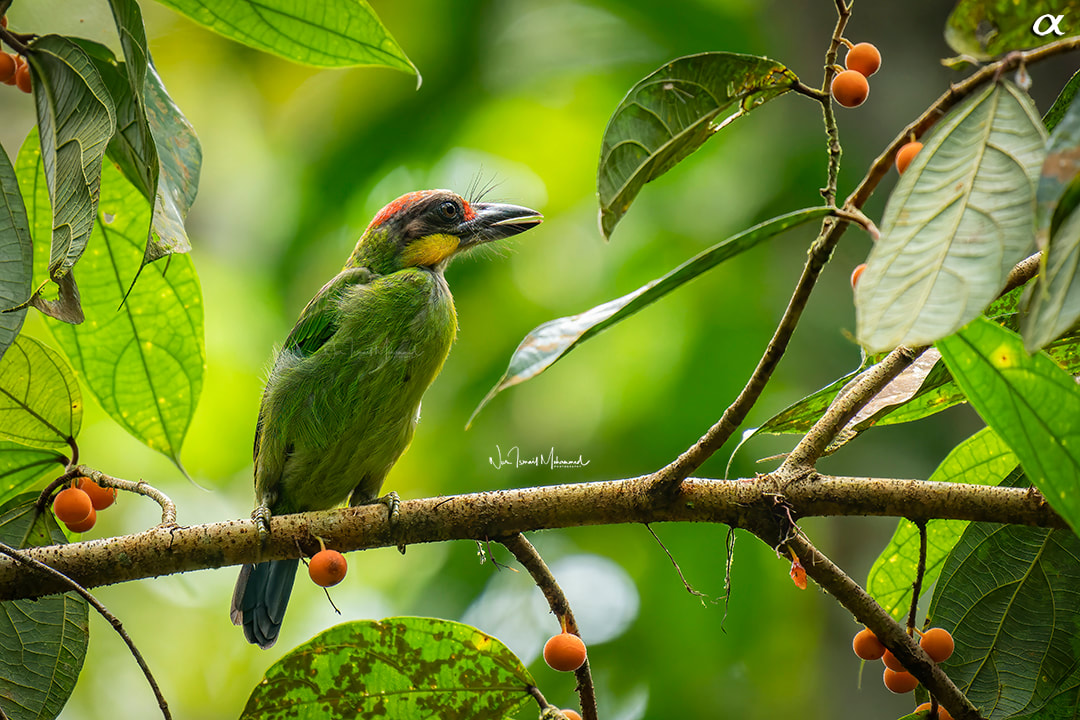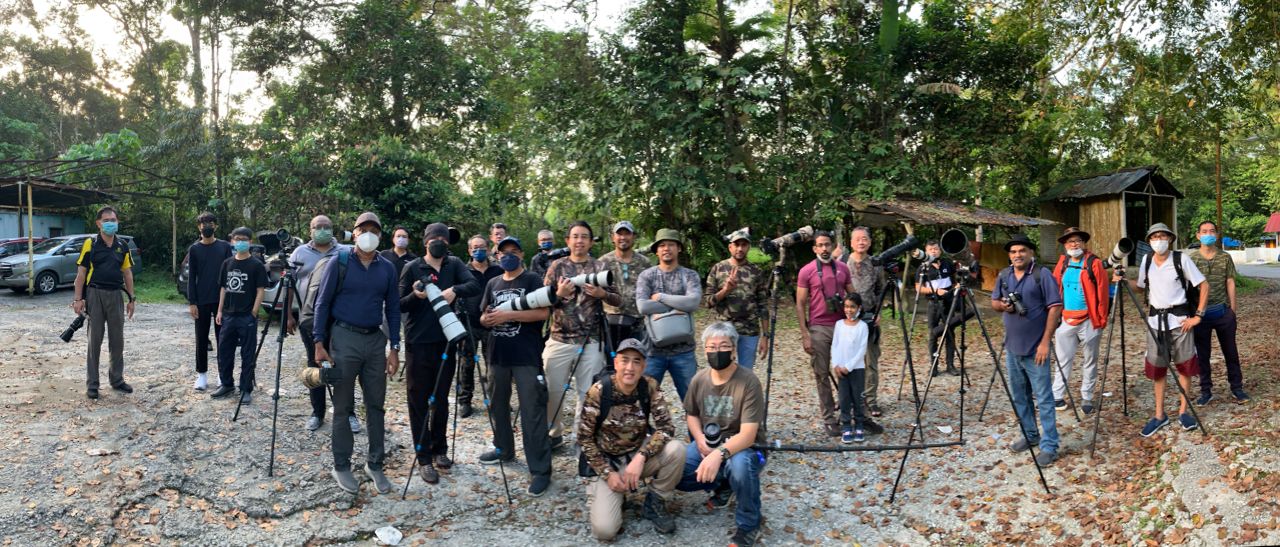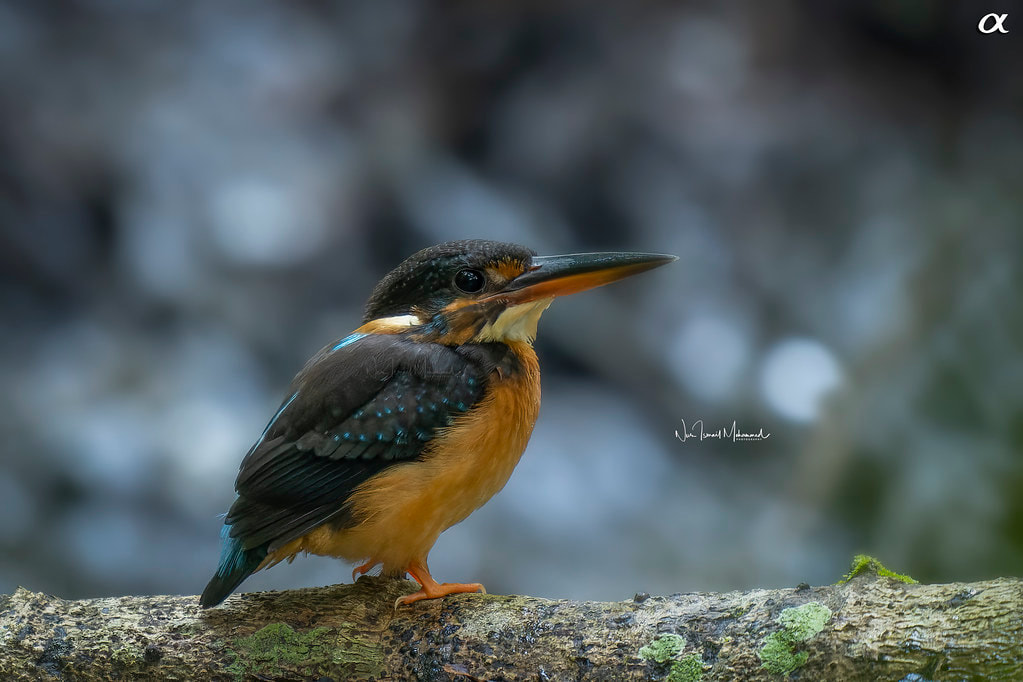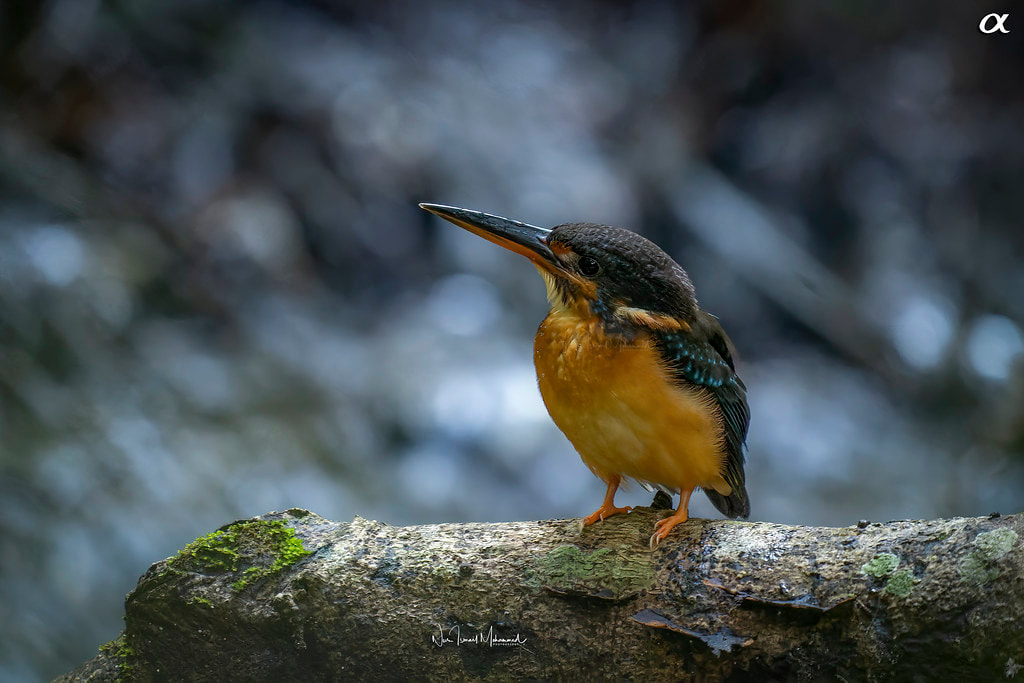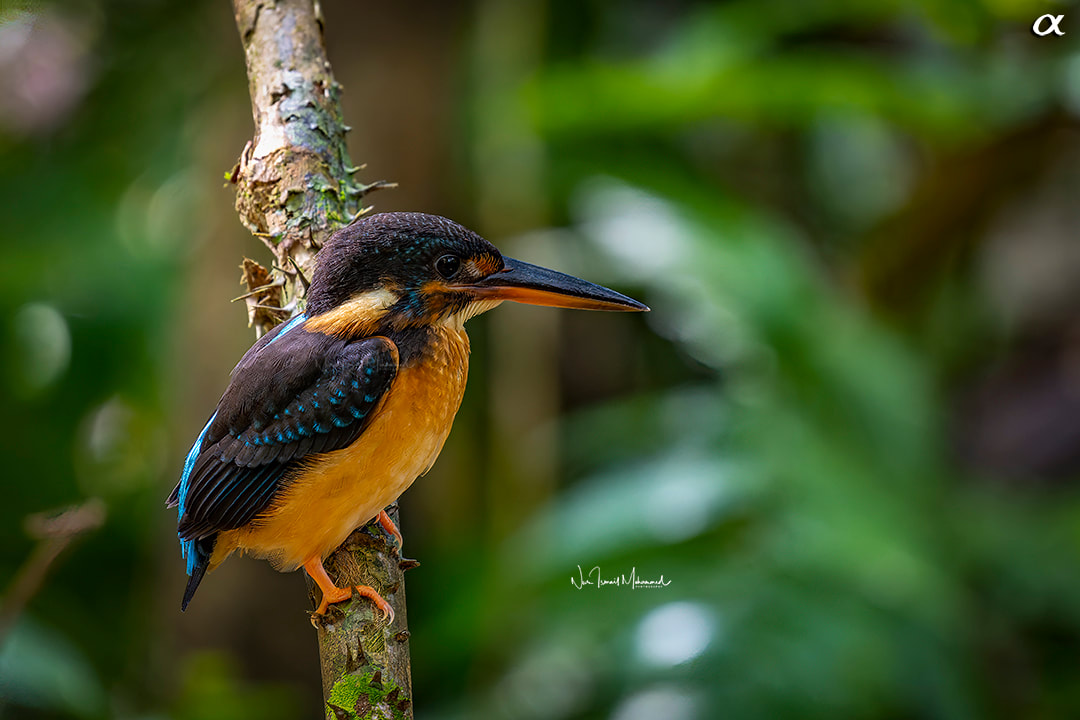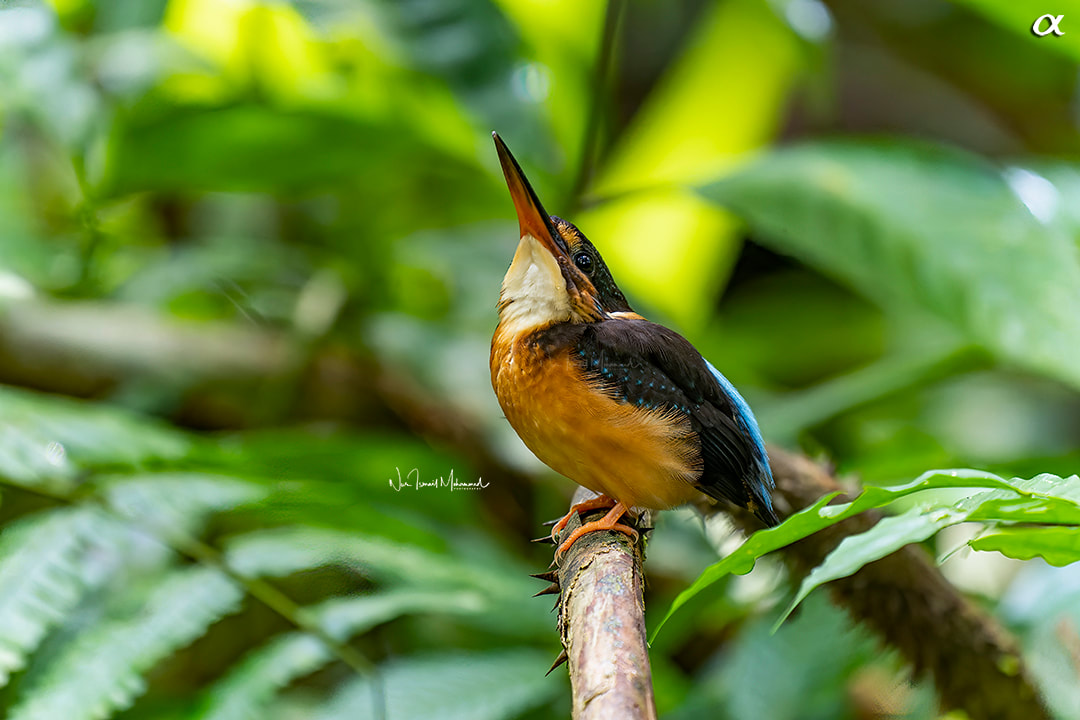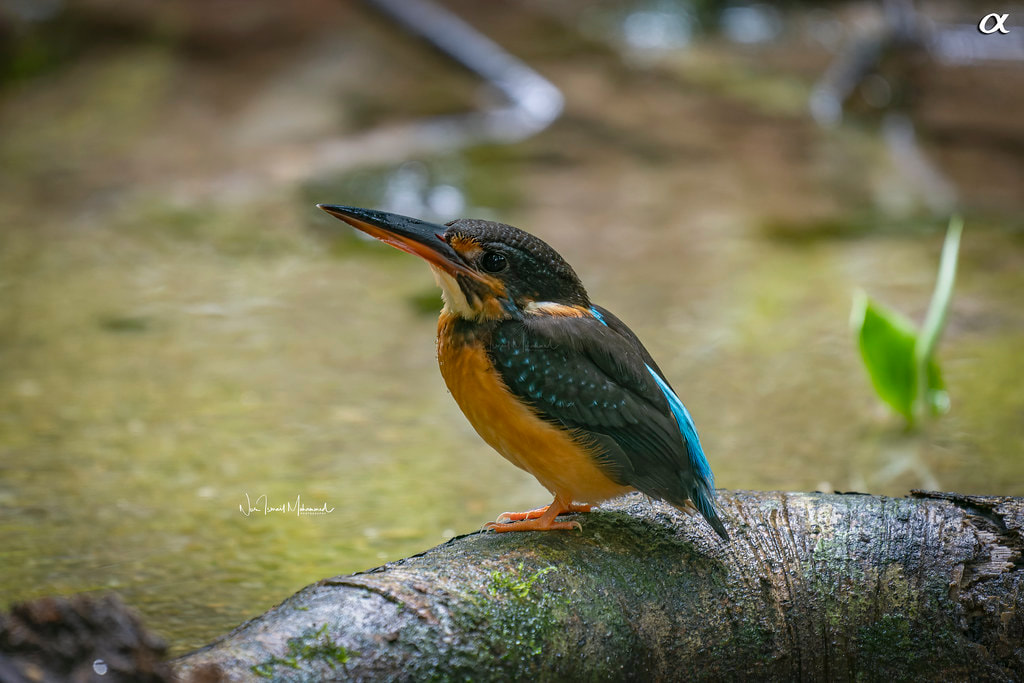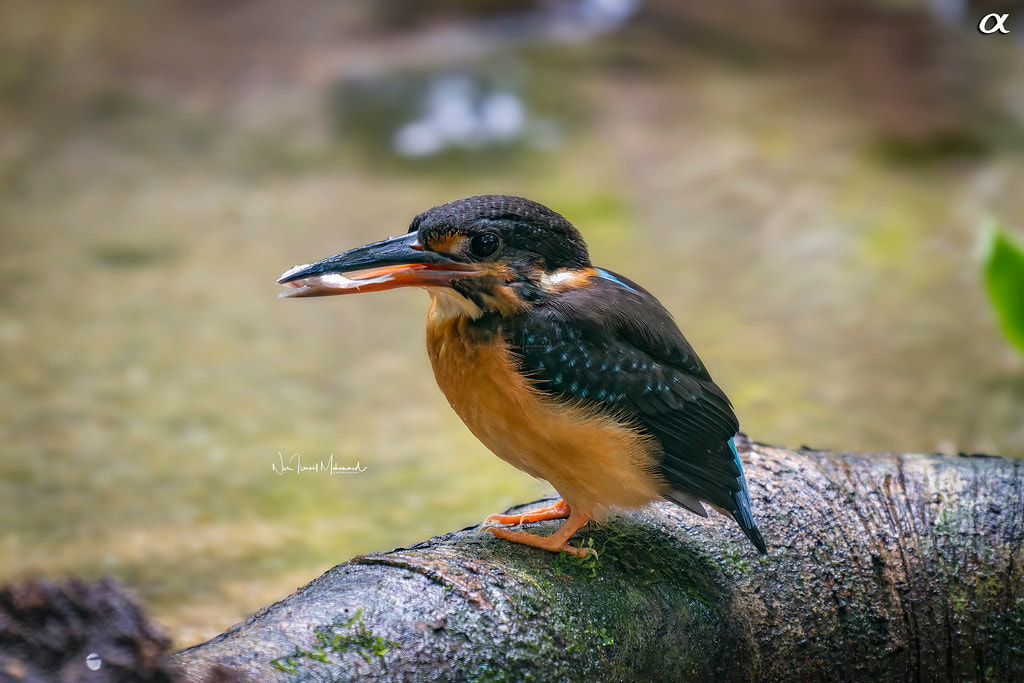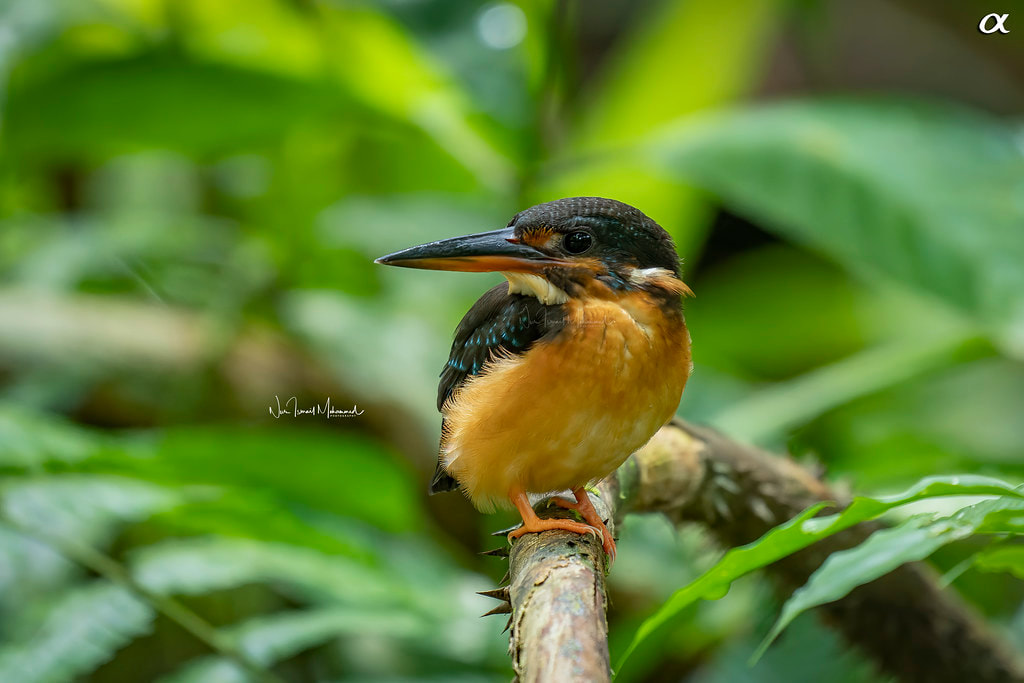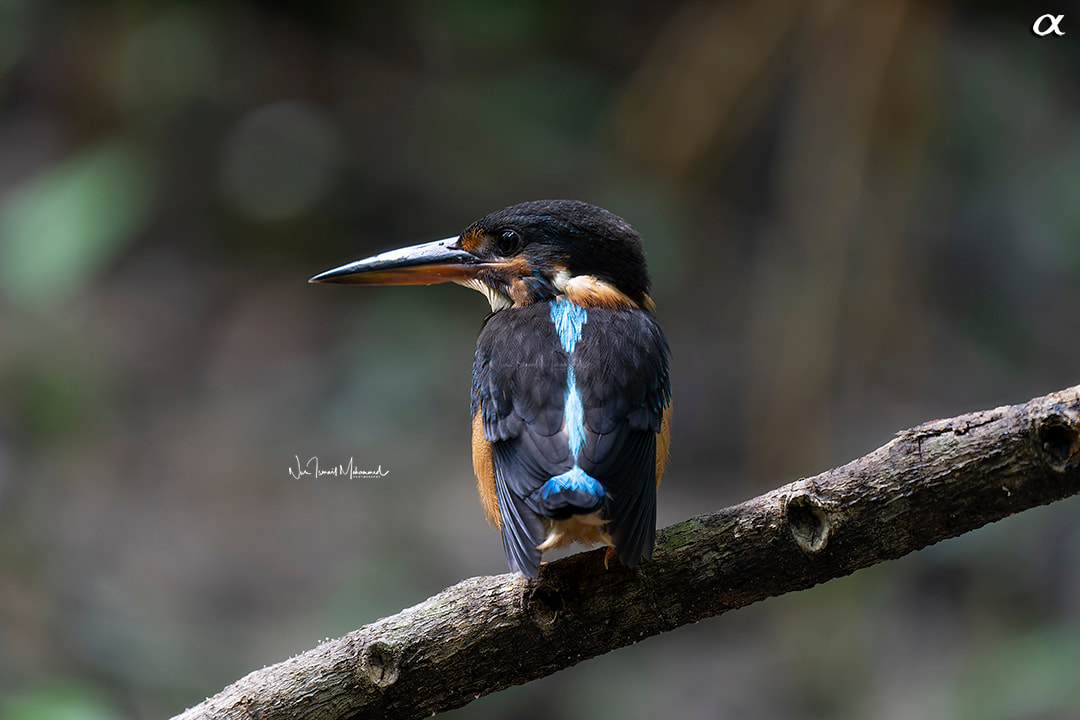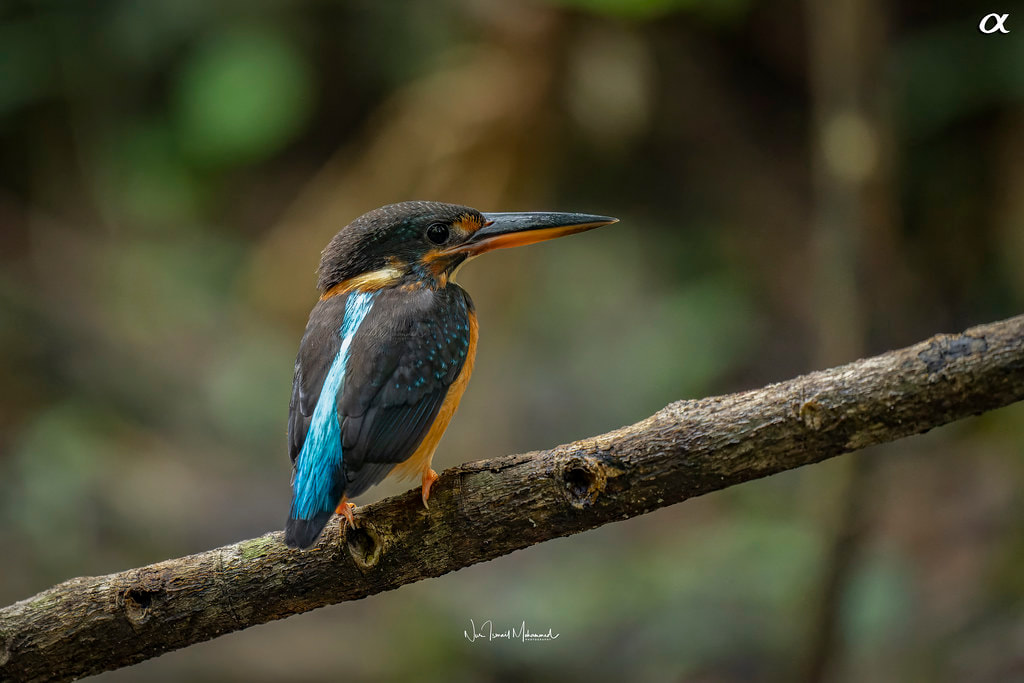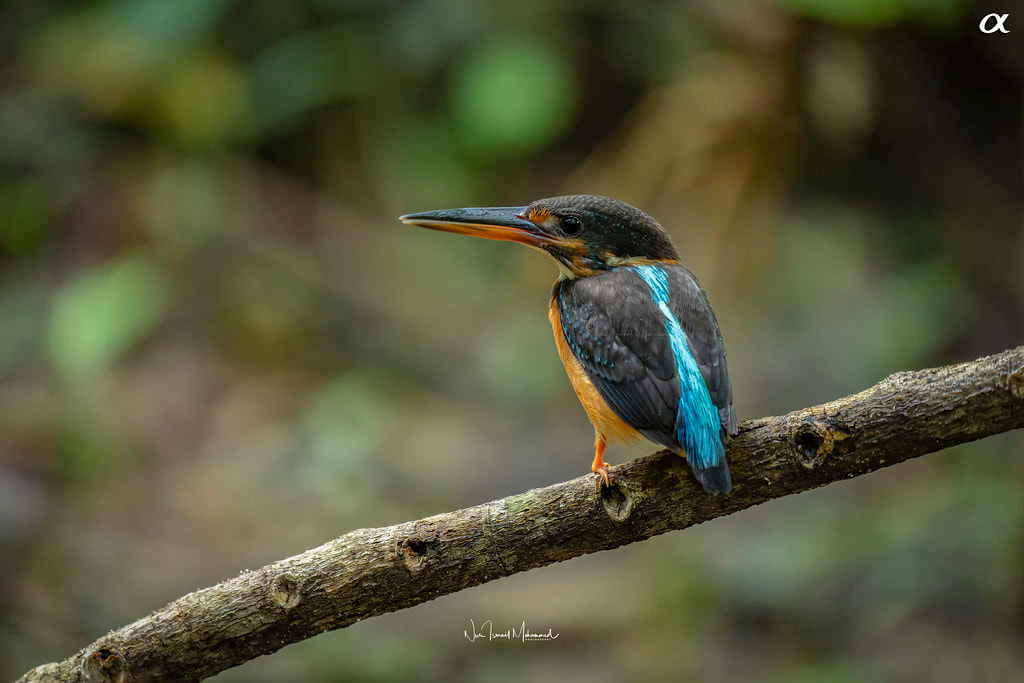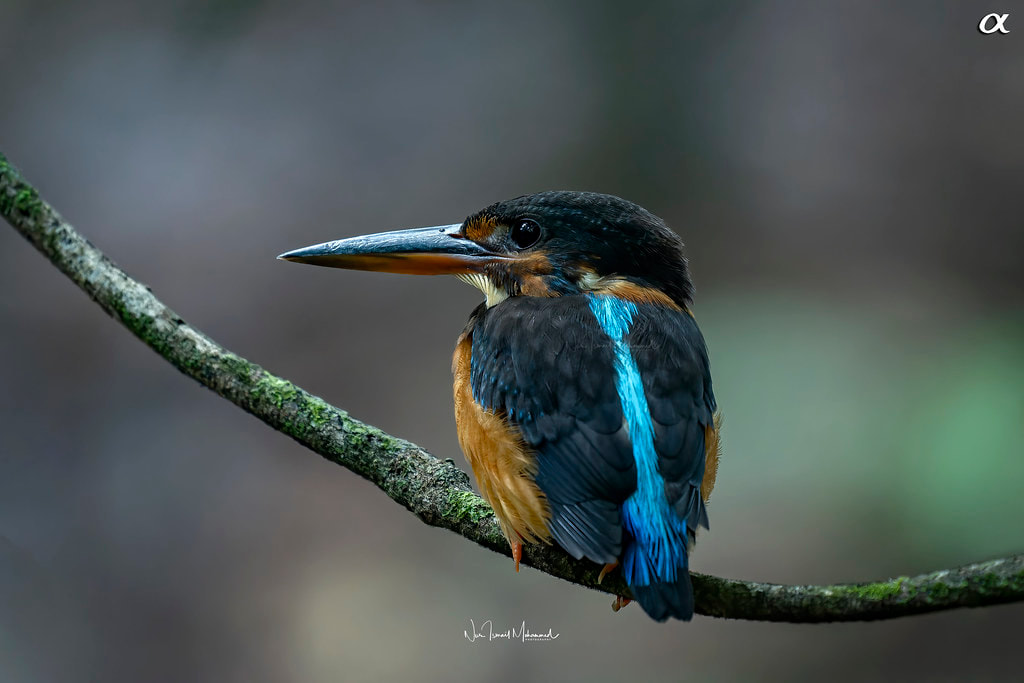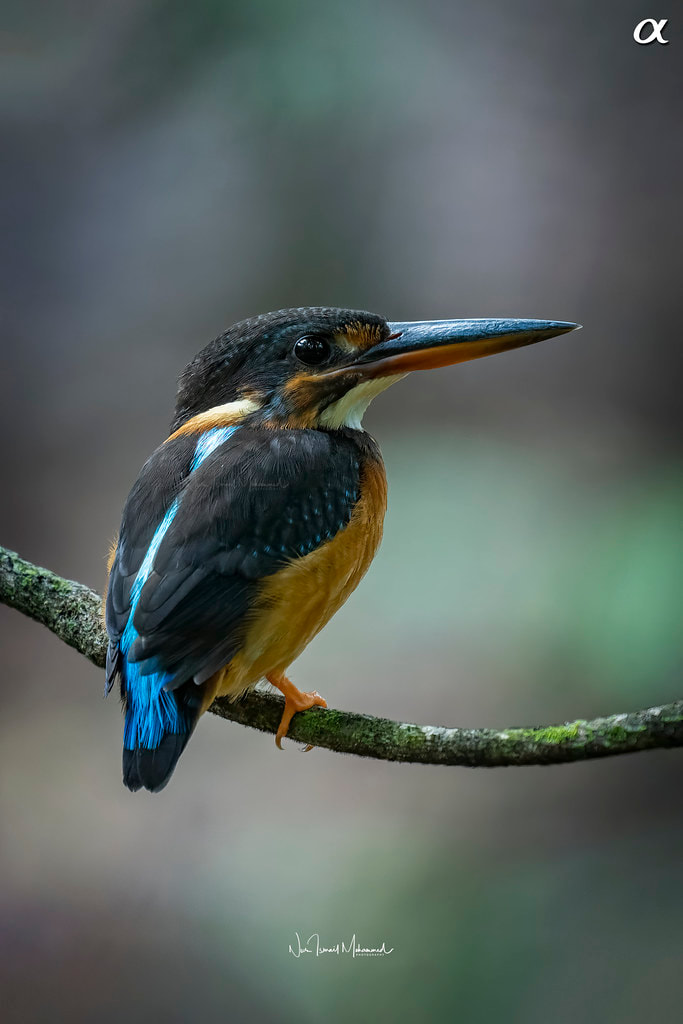|
Alhamdulillah, today I'll be travelling to Sabah for 1 week with some friends. Stay tuned for some sharing of our experiences.
0 Comments
A medium-sized river kingfisher, Alcedo peninsulae is commonly known as the Malay Blue-banded Kingfisher. It occurs in Brunei, Indonesia, Malaysia, Myanmar and Thailand. This species has dark blackish upperparts with silvery-azure streak from the mantle to rump. It also has a long, white neck-flash with rufous tip, white throat and rest of underparts in the male are whitish with bold blue bands across the chest. While the female with rich orange underparts but lacking breast-band. It feeds on fish, crustaceans, insects and larvae, and small lizards. The Malay Blue-banded Kingfisher is listed as Near Threatened by IUCN Red List due to habitat loss (BirdLife International, 2016). [Source: MyBIS] Last weekend I went to Hulu Langat to try my luck again for the male Malay blue-banded kingfisher at the old rufous-backed kingfisher location. The kingfisher came shortly after I've set up my gear. Arrived at the location by 7:30am and there were already more than 10 photographers there. By 9:15am, there were more than 30 photographers! My special thanks to SONY Malaysia for loaning me the SEL600F40GM lens. The lens is exceptionally sharp and with the wide aperture, I'm able to lower my ISO, which in turn, lower the noise while maintaining fast enough shutter speed to photograph this beauty. The bokeh is just simply awesome!!! Name: Malay blue-banded kingfisher (male) Scientific: Alcedo peninsulae Malay: Pekaka Bukit Family: Alcedinidae IUCN Red List (v3.1, 2014): Near Threatened Gear: SONY α1 + SEL600F40GM Location: Hulu Langat, Selangor #NurIsmailPhotography #sony #sonymalaysia #a1 #α1 #SEL600F40GM #alpha #AlphaGuru #SAG #DXO #PureRAW2 #topazlabs #leofoto #pg1 #Fight4ourPlanet #DiscoverWithMYAlpha #DiscoverWithAlpha #AlphaUniverseMY #FullFrameLife #MySONYLife
Copyright © 2022 Nur Ismail Photography. All rights reserved. Do not use or reproduce these images on websites, blogs or publications without expressed written permission from the photographer. For any enquiries, please visit my website: www.nurismailphotography.com or email at [email protected]. Flickr: www.flickr.com/photos/nurismailphotography/ Mulleripicus pulverulentus is one of the threatened woodpeckers and is among the largest woodpeckers in the world. It can grow up to 50 cm in length and is known as the great slaty woodpecker. This woodpecker is very distinctive for its huge size, grey plumage and buffy throat with the male only has a red malar stripe. This species occurs in India and Southeast Asia but is extinct in Singapore. In Malaysia, it can be found in large forests, the forest edge mangroves and deciduous woodlands. This species usually flies in a small noisy flock in the canopy. The major threat to this species is its habitat destruction. [Source: MyBIS] Scientific: Mulleripicus pulverulentus Malay: Belatok Berjalur / Belatuk Berjalor / Belatuk Berjalur / Belatuk Cereng / Belatuk Kelabu / Belatuk Masyhur Kelabu Family: Picidae IUCN Red List (v3.1, 2016): Vulnerable Gear: Gear: SONY α1 + SEL200600G + SEL14TC Location: Janda Baik, Pahang #NurIsmailPhotography #sony #sonymalaysia #a1 #α1 #SEL200600G #SEL14TC #alpha #AlphaGuru #SAG #DXO #PureRAW2 #topazlabs #leofoto #pg1 #Fight4ourPlanet #DiscoverWithMYAlpha #DiscoverWithAlpha #AlphaUniverseMY #FullFrameLife #MySONYLife #borneo #endemic
Copyright © 2022 Nur Ismail Photography. All rights reserved. Do not use or reproduce these images on websites, blogs or publications without expressed written permission from the photographer. For any enquiries, please visit my website: www.nurismailphotography.com or email at [email protected]. Flickr: www.flickr.com/photos/nurismailphotography/ A medium-sized pitta measuring about 15 cm in length, Erythropitta arquata or commonly known as the blue-banded pitta is a species of bird in the Pittidae family. It is found in Indonesia, Brunei and Malaysia where it is endemic to the island of Borneo (Philipps, 2014). Its natural habitat is subtropical or tropical moist lowland forests. The blue-banded pitta has scarlet forehead to the nape and sides of its neck, sky-blue postocular (behind its eyes) stripe, dark green-blue upperparts (which distinguish it from other Bornean pittas), with a narrow sky-blue line on its wings. It also has orange-rufous cheeks and throat and rest of its underparts are scarlet with sky-blue breastband appearing like a necklace. The females are similar but their upperparts are dark olive-green and their tails grey-blue. The juveniles are plain brown, mottled grey-brown and buffish on sides of the head and throat. This species feeds on ants and other insects. [Source: MyBIS] Last weekend, in conjunction with the Awal Muharram holiday, I took a flight with my good friend Dr. Azman Ab Aziz from Kuala Terengganu, to Sabah in search of the blue-banded pitta. Thankfully, we've got some good shots of the pitta and that made the trip all worth it! Thank you to our host, Subki Abdul Hadi, without whom, our trip would not be a success. Name: Blue-banded pitta Scientific: Erythropitta arquata Malay: Pacat Belang Biru Family: Pittidae IUCN Red List (v3.1, 2018): Least Concern Gear: SONY α1 + SEL200600G Location: Sabah #NurIsmailPhotography #sony #sonymalaysia #a1 #α1 #SEL200600G #alpha #AlphaGuru #SAG #DXO #PureRAW2 #topazlabs #leofoto #pg1 #Fight4ourPlanet #DiscoverWithMYAlpha #DiscoverWithAlpha #AlphaUniverseMY #FullFrameLife #MySONYLife #borneo #endemic
Copyright © 2022 Nur Ismail Photography. All rights reserved. Do not use or reproduce these images on websites, blogs or publications without expressed written permission from the photographer. For any enquiries, please visit my website: www.nurismailphotography.com or email at [email protected]. Flickr: www.flickr.com/photos/nurismailphotography/ Harpactes duvaucelii or commonly known as the Scarlet-rumped Trogon is a small-sized bird measuring about 24 cm in length. It belongs to Trogonidae family (Strange & Jeyarajasingam, 1993). This species occurs in Brunei, Indonesia, Malaysia, Myanmar, and Thailand where it inhabits subtropical or tropical moist lowland forests, swamps and montane forests. It usually perches in lower and middle storey, turning its head slowly to look for insects. The male of Scarlet-rumped Trogon has a black head and throat, scarlet breast and abdomen, a cinnamon-brown back and a bright, large rounded patch of scarlet on the rump, white bars on its wings' sections, and a blue bill. While the female has greyish brown head and upperparts, pale buff-brown rump, olive breast and light orange on the lower underparts. The Scarlet-rumped Trogon was categorised as Near Threatened (NT) by the IUCN Red List due to habitat loss (BirdLife International, 2016). [Source: MyBIS] Name: Scarlet-rumped trogon Scientific: Harpactes duvaucelii Malay: Kesumba Puteri Family: Trogonidae IUCN Red List (v3.1, 2016): Near Threatened Gear: SONY α1 + SEL200600G Location: Jalan Gombak #NurIsmailPhotography #sony #sonymalaysia #a1 #α1 #SEL200600G #alpha #AlphaGuru #SAG #DXO #PureRAW2 #topazlabs #leofoto #pg1 #Fight4ourPlanet #DiscoverWithMYAlpha #DiscoverWithAlpha #AlphaUniverseMY #FullFrameLife #MySONYLife
Copyright © 2022 Nur Ismail Photography. All rights reserved. Do not use or reproduce these images on websites, blogs or publications without expressed written permission from the photographer. For any enquiries, please visit my website: www.nurismailphotography.com or email at [email protected]. Flickr: www.flickr.com/photos/nurismailphotography/ A medium-sized river kingfisher, Alcedo peninsulae is commonly known as the Malay Blue-banded Kingfisher. It occurs in Brunei, Indonesia, Malaysia, Myanmar and Thailand. This species has dark blackish upperparts with silvery-azure streak from the mantle to rump. It also has a long, white neck-flash with rufous tip, white throat and rest of underparts in the male are whitish with bold blue bands across the chest. While the female with rich orange underparts but lacking breast-band. It feeds on fish, crustaceans, insects and larvae, and small lizards. The Malay Blue-banded Kingfisher is listed as Near Threatened by IUCN Red List due to habitat loss (BirdLife International, 2016). [Source: MyBIS] Last weekend I went to Hulu Langat to try my luck again for the male Malay blue-banded kingfisher. I set up my hide by the river and wait for the bird to come. I dug a hole and put in some fish as bait. Thankfully, it wasn't long before the kingfisher came in front of my hide. My special thanks to SONY Malaysia for loaning me the SEL600F40GM lens. The lens is exceptionally sharp and with the wide aperture, I'm able to lower my ISO, which in turn, lower the noise while maintaining fast enough shutter speed to photograph this beauty. Hope to own it someday! I'm so delighted that I have managed to complete my Peninsular Malaysia kingfisher series before the year end. Next target is the black-faced banded kingfisher, which is endemic to Borneo. Name: Malay blue-banded kingfisher (male) Scientific: Alcedo peninsulae Malay: Pekaka Bukit Family: Alcedinidae IUCN Red List (v3.1, 2014): Near Threatened Gear: SONY α1 + SEL600F40GM Location: Hulu Langat, Selangor #NurIsmailPhotography #sony #sonymalaysia #a1 #α1 #SEL600F40GM #alpha #AlphaGuru #SAG #DXO #PureRAW2 #topazlabs #leofoto #pg1 #Fight4ourPlanet #DiscoverWithMYAlpha #DiscoverWithAlpha #AlphaUniverseMY #FullFrameLife #MySONYLife
Copyright © 2022 Nur Ismail Photography. All rights reserved. Do not use or reproduce these images on websites, blogs or publications without expressed written permission from the photographer. For any enquiries, please visit my website: www.nurismailphotography.com or email at [email protected]. Flickr: www.flickr.com/photos/nurismailphotography/ A fairly small cuckoo measuring about 21-23 centimetres in length, Cacomantis merulinus is a species of bird belonging to family Cuculidae. This species is commonly known as the plaintive cuckoo. It inhabits forest edges, open woodlands, scrubs, grasslands, farmlands, parks and gardens. The plaintiff cuckoo mostly feeds on insects such as beetles, bugs, termites and numerous soft-bodies species. It may take some fruits too. The male has grey–brown upper plumage, orange below plumage, pale grey head, throat and upper breast, dark greyish brown mantle and wings, white-tipped tail feathers, orange-yellowish legs and feet, red eyes and yellowish bill below and black above. While the female mostly resembles the male; but often occurs in a "hepatic" morph with a reddish-brown upper plumage with dark bars. Its plumages below are paler with fainter barring. It also has a light stripe over its eyes and the tail is barred along the entire length. The juvenile looks like the hepatic female but is duller and has dark streaks instead of bars on the crown and throat. As numerous cuckoos, the plaintive cuckoo is a brood parasite. It favours laying its eggs in the closed nests with a narrow entrance, built by small passerines such as ioras, prinias, cisticolas and tailorbirds. The eggs are similar to those of the host species but are larger. (Source: MyBIS] #NurIsmailPhotography #sony #sonymalaysia #a1 #α1 #SEL200600G #alpha #AlphaGuru #SAG #DXO #PureRAW2 #topazlabs #leofoto #pg1 #Fight4ourPlanet #DiscoverWithMYAlpha #DiscoverWithAlpha #AlphaUniverseMY #FullFrameLife #MySONYLife
Copyright © 2022 Nur Ismail Photography. All rights reserved. Do not use or reproduce these images on websites, blogs or publications without expressed written permission from the photographer. For any enquiries, please visit my website: www.nurismailphotography.com or email at [email protected]. Flickr: www.flickr.com/photos/nurismailphotography/ Acridotheres javanicus is a medium-sized myna belongs to the family Sturnidae. It is known as the Javan Myna. Compared to other myna, this species has black plumage with yellow bill and legs. Also, the crest is long and the vent is white (Strange, 2000). Javan Myna is an introduces species to south Peninsular Malaysia since 1970s and spreading northward (Jeyarajasingam & Pearson, 2012), and Sarawak since 1980s (Philipps, 2014). It is originally come from Java, but it is widespread in Asia. Normally, it occurs in open country, parks, garden, orchards, oil palm plantation and the forest edge (Jeyarajasingam & Pearson, 2012). The major threat for Javan myna is the bird trade (IUCN, 2017). [Source: MyBIS] I was lucky to have an opportunity to photography the rare, leucistic javan myna. White coloured, compared to the normal black-greyish ones. However, the eyes, beak and legs are the same colour, thus the leucistic term instead of albino. Name: Leucistic javan myna Scientific: Acridotheres javanicus Malay: Tiong Jambul Jawa / Tiong Tongkang Puteh Family: Sturnidae IUCN Red List (v3.1, 2016): Vulnerable Gear: SONY α1 + SEL200600G + SEL14TC Location: Taman Botani Perdana, Kuala Lumpur #NurIsmailPhotography #sony #sonymalaysia #a1 #α1 #SEL200600G #SEL14TC #alpha #AlphaGuru #SAG #DXO #PureRAW2 #topazlabs #leofoto #pg1 #Fight4ourPlanet #DiscoverWithMYAlpha #DiscoverWithAlpha #AlphaUniverseMY #FullFrameLife #MySONYLife
Copyright © 2022 Nur Ismail Photography. All rights reserved. Do not use or reproduce these images on websites, blogs or publications without expressed written permission from the photographer. For any enquiries, please visit my website: www.nurismailphotography.com or email at [email protected]. Flickr: www.flickr.com/photos/nurismailphotography/ We had a productive day at the workshop at Chongkak Park & Resort by Tourism Selangor in Hulu Langat, jointly organized by SONY Malaysia and YL Camera & Services Sdn Bhd. There were more than 20 registrants and everybody had a great time there. We started the workshop at about 8:10am, covering three locations and finished by 12:00pm. At Location #1, everybody had the opportunity to photograph the nesting silver-breasted broadbill. We proceeded to Location #2 by 9:00am to photograph the rufous-backed kingfisher and white-chested babbler. By 10:30am, we proceeded on to the fruiting tree at Location #3 where we managed to photograph the green broadbill, asian fairy-bluebird, yellow-crowned barbet, gold-whiskered barbet, sooty barbet and yellow-breasted flowerpecker. It was a fruitful day for everyone and thank you all for attending. Till next time! #NurIsmailPhotography #sony #sonymalaysia #a1 #α1 #SEL200600G #alpha #AlphaGuru #SAG #DXO #PureRAW2 #topazlabs #leofoto #pg1 #Fight4ourPlanet #DiscoverWithMYAlpha #DiscoverWithAlpha #AlphaUniverseMY #FullFrameLife #MySONYLife
Copyright © 2022 Nur Ismail Photography. All rights reserved. Do not use or reproduce these images on websites, blogs or publications without expressed written permission from the photographer. For any enquiries, please visit my website: www.nurismailphotography.com or email at [email protected]. Flickr: www.flickr.com/photos/nurismailphotography/ A medium-sized river kingfisher, Alcedo peninsulae is commonly known as the Malay Blue-banded Kingfisher. It occurs in Brunei, Indonesia, Malaysia, Myanmar and Thailand. This species has dark blackish upperparts with silvery-azure streak from the mantle to rump. It also has a long, white neck-flash with rufous tip, white throat and rest of underparts in the male are whitish with bold blue bands across the chest. While the female with rich orange underparts but lacking breast-band. It feeds on fish, crustaceans, insects and larvae, and small lizards. The Malay Blue-banded Kingfisher is listed as Near Threatened by IUCN Red List due to habitat loss (BirdLife International, 2016). [Source: MyBIS] Last weekend, I had the opportunity to spend some time in Hulu Langat to look for this kingfisher and luck was on my side as I have managed to photograph the female Malay blue-banded kingfisher by the river, using a hide, without which, it would have been impossible to photograph this skittish bird. Hope to get the male kingfisher on my next visit there. Scientific: Alcedo peninsulae Malay: Pekaka Bukit Family: Alcedinidae IUCN Red List (v3.1, 2014): Near Threatened Gear: SONY α1 + SEL200600G Location: Hulu Langat, Selangor #NurIsmailPhotography #sony #sonymalaysia #a1 #α1 #SEL200600G #alpha #AlphaGuru #SAG #DXO #PureRAW #topazlabs #leofoto #pg1 #Fight4ourPlanet #DiscoverWithMYAlpha #DiscoverWithAlpha #AlphaUniverseMY #FullFrameLife #MySONYLife
Copyright © 2022 Nur Ismail Photography. All rights reserved. Do not use or reproduce these images on websites, blogs or publications without expressed written permission from the photographer. For any enquiries, please visit my website: www.nurismailphotography.com or email at [email protected]. Flickr: www.flickr.com/photos/nurismailphotography/ |
AuthorThis is the photography journey of Nur Ismail Photography where all the experiences from this year onwards will be shared with the audience. In collaboration with NiSi Malaysia, Leofoto, SONY Malaysia and Skylum Software. Thanks for viewing! Archives
August 2022
Categories |
